A comprehensive guide to part-time PhDs
Doing a PhD part-time can be an attractive option for many reasons. However, part-time PhDs are less common than full-time ones, and there tends to be a lack of information on this option. This guide to part-time PhDs answers the most common questions that prospective part-time PhD candidates have.

The difference between a part-time and a full-time PhD
How much work is a part-time phd, how long does it take to do a phd part-time, where is it possible to do a phd part-time, benefits of a part-time phd, disadvantages of a part-time phds, is it worth doing a part-time phd, skills necessary for completing a phd part-time, conditions for success in a part-time phd, online part-time phd programmes, ten questions to ask yourself before embarking on a part-time phd.
The main difference between a part-time and a full-time PhD is typically the amount of time that a student spends per week on PhD-related tasks. The typical length of a full-time work week is five 8-hour days, comprising 40 hours in total. In some countries, this includes breaks. Thus, 38-40 hours/week can generally be considered full-time employment.
A part-time PhD carries fewer hours per week than full-time employment.
Precise definitions of part-time work differ. While some consider part-time employment as anything less than 38 hours/week, the OECD for instance defines part-time workers as those who work less than 30 hours/week.
Some universities have minimum requirements for part-time PhDs, for example, a minimum of 20 hours/week. Others, however, are more flexible. They allow part-time PhD candidates to spend anything between a few hours to several days per week on their part-time PhD studies.
Coursework that is required in PhD programmes is generally adjusted to part-time candidates and stretched over a longer period. The same is true for certain deadlines and comprehensive exams if required.
The degree that is awarded upon successful completion of a part-time PhD is the same as those being awarded for completing full-time programmes.
Most degree certificates don’t even mention that a PhD was pursued on a part-time basis. There is no reason to worry that a part-time PhD degree may be perceived as worth less than a full-time one.
A part-time PhD requires pretty much the same amount of work as a full-time PhD. Part-time PhD programmes are spread out over a longer period, but the requirements in terms of credits and output ( a monograph or cumulative dissertation ) are usually the same.
Part-time PhD candidates are often highly aware of their time limitations. In turn, they may be better at utilizing their limited time during the week. For instance by minimizing procrastination, prioritizing tasks and making strategic decisions. However, this is difficult to generalise.
Part-time PhD students may be more inclined to work during evenings and weekends.
Other responsibilities during the ‘normal’ working hours result in less attention to PhD-related work. And sometimes, PhD work requires several hours of uninterrupted deep work.
In some cases, the lack of opportunities to focus on the PhD for a longer period can increase frustrations and stress levels. This is particularly true when part-time PhD students start together with a cohort of full-time PhD students and compare their progress with that of their full-time peers.
Ultimately, how much work a part-time PhD requires depends very much on a student’s research project, personality, efficiency, subjective perception of workload and stress, supervision, luck with experiments, and so on. This does not differ from a full-time PhD.
In most cases, a part-time PhD takes longer than a full-time PhD. A general rule of thumb is that the fewer hours someone spends on a PhD per week, the longer it takes to complete it.
The number of years that full-time PhD students take to complete a PhD varies. Some finish in three years. Others require four, five or more years. Thus, there is a huge variation in the time it takes to finish a PhD. The same is true for part-time PhDs.
There are also differences between universities. Some universities have a strict programme that takes, for instance, three years for full-time PhD students and six years for part-time PhD students.
Other universities adapt to the specific circumstances of individual PhD candidates. They may allow someone to finish a part-time PhD in three years as long as all requirements are met. But they may also be okay with a part-time candidate who spends a decade on his or her PhD studies.
Can you complete a part-time PhD programme? Yes, absolutely.
But due to the vast differences between universities as well as PhD programmes, it is essential to inform yourself properly before applying for a part-time PhD.
The regulations in terms of length of a part-time PhD have a major effect on a PhD trajectory, time planning, tuition fees if applicable, etcetera.
There are plenty of opportunities to do a PhD part-time, but the specific opportunities and arrangements depend very much on individual universities.
Some universities advertise specific part-time PhD programmes on their web pages. Or, with a little bit of digging, provide information online for those who are interested in part-time PhDs.
For other universities, it is difficult to find any information on part-time PhD programmes online. This does not always mean that there are no opportunities. Sometimes, it requires sending emails to the admissions office, or contacting a potential PhD supervisor directly to ask for part-time possibilities.
There are also differences in national contexts. In some countries, for instance, in Germany, part-time PhD studies are often the norm. In Germany, many paid positions exist that encompass 60% of a full-time equivalent: time during which a PhD student is required to work in a lab or assist a professor. In the remaining 40% of the time, which is unpaid, a PhD student is expected to work on a dissertation.
In some other countries, PhD students tend to be employed in the public sector, receive a salary and make pension contributions. In those cases, they tend to fall under the same regulations as the non-academic workforce. This can mean, for instance, that they have the right to change their contract to part-time, for instance in the case of care responsibilities.
There are many benefits to doing a PhD part-time. Some of the most common advantages are
- More secure finances: Many full-time PhD students experience financial insecurities because PhD scholarships are often not enough to cover living expenses, or do not cover the whole PhD trajectory. Part-time PhD students often work next to their PhD studies which provide additional income and a layer of financial security.
- Improved employability: This includes industry employability and employability in academia. Industry employability is enhanced if someone already gains substantial work experience outside academia, through working in a certain profession while doing a part-time PhD. Employability in academia is enhanced if someone already gains academic work experience (for example as a research assistant) and teaching experience (for example as a junior lecturer or teaching assistant) while doing a part-time PhD.
- Flexibility: Doing a PhD part-time tends to provide increased flexibility. For instance, students who have care responsibilities are more likely to be able to combine their PhD studies with their other responsibilities on a part-time basis.
- Efficiency: The advantage of many part-time PhDs is that they are very aware of their time limitations and force themselves to be strategic in their choices. Part-time PhD students also often benefit from existing work experience and tend to be a bit older than full-time students. Combined, they sometimes are more confident and struggle less with imposter syndrome. Since procrastination is essentially linked to a fear of failure, part-time PhD students on average may be more confident, suffer less from procrastination and are therefore able to work more efficiently.
There are also disadvantages and challenges in part-time PhDs. Some of the most common disadvantages of doing a PhD part-time are:
- Difficulty to maintain a work-life balance: ‘Getting it all done’ is always challenging. Adding a part-time PhD to existing tasks, activities and responsibilities can negatively affect a person’s work-life balance. Part-time PhDs frequently require multi-tasking, which can interrupt the flow of work and lead to mistakes. Furthermore, evenings, weekends and holidays may be the only times when uninterrupted PhD work for several hours or days is possible. When part-time PhD students are not very good with boundary setting, they can easily feel overwhelmed and as if they can never take a break.
- Tuition fees: While not all PhD students (regardless of whether full-time or part-time) have to pay tuition fees, many do. Tuition fees tend to be adjusted in part-time programmes. Nonetheless, paying tuition fees for several years can be a financial burden. In addition, part-time PhD students are not always eligible for all scholarships and funding opportunities.
- Less supervision: Part-time PhD students often work even more independently than their full-time counterparts. Of course, the amount of supervision differs for full-time PhD students as well. However, a simple reason for less supervision is simply that part-time PhD students are not always physically present in a lab or department. They have less spontaneous interactions with their supervisors and other professors. It reduces the opportunities to ask a quick question or get feedback on a small issue. Part-time PhD students may be more reliant on more formal, scheduled meetings every few weeks or months.
- Feelings of isolation: Part-time PhD students may feel disconnected and isolated due to a lot of independent work, less physical presence and opportunities to connect with colleagues and peers. Furthermore, part-time PhDs tend to be in the minority, as full-time PhDs are still more common. This means that part-time PhDs may feel misunderstood and have no one to share their unique experiences and challenges with.
Following your curiosities and researching a topic in-depth can be a wonderful thing.
Yet, the question of whether a PhD part-time is worth doing or not is difficult to answer. It depends on the unique situation and ambition of each person in question.
Some people embark on a PhD part-time to progress in their career. Some people hope for a financial reward after completing a PhD part-time. Some people intend to change careers and use a part-time PhD to start the process while still earning money in a different job. Some people look for a challenge and embark on a part-time PhD for self-fulfilment. Some people have no other option but to do a PhD part-time.
Every person has to decide for him- or herself whether it is worth it, sensible and feasible. The decision requires a lot of self-reflection, and financial and life planning.
The decision to do a part-time PhD should not be treated lightly.
Completing a PhD part-time requires several skills. These skills can be learnt. However, a complete lack of these skills at the start of a part-time PhD will make the trajectory much more challenging.
First of all, part-time PhDs benefit from a high degree of self-discipline.
Those who struggle to motivate themselves and to get the smallest task done without any external pressure, might not be the best candidates for part-time PhDs. Part-time PhD work requires a lot of self-discipline as well as self-motivation.
Next, the ability to multi-task and keep a cool head in stressful situations is a big advantage for those who embark on a part-time PhD.
Stressing out easily and feeling easily overwhelmed with many tasks and deadlines, on the other hand, is counterproductive in a part-time PhD.
Furthermore, flexibility and the ability to adapt to different circumstances is pivotal.
Part-time PhD students tend to wear many different hats. They need to be able to switch between different roles and juggle lots of different tasks and responsibilities.
Additionally, not everything will work according to plan. Part-time PhD students have to accept that things do not always work out as expected and have to quickly adapt to new situations.
Lastly, the ability to work independently can make or break a part-time PhD trajectory. Working on a PhD part-time often means working from home, alone, without social interaction and constant feedback opportunities. Not everyone is cut out for this type of work.
A fundamental condition for success in a part-time PhD is the selection of a fitting research topic.
As in any PhD, regardless of whether full- or part-time, a PhD student spends many waking hours on the topic. If the topic is not interesting to the PhD student, and he or she is not passionate about it, motivation to work on it will inevitably decrease over time.
At the same time, the most passionate and skilled PhD student may still struggle if the institutional environment and supervision are suboptimal.
A supportive institutional environment that assists, accommodates, and invests in part-time PhD students can make a world of difference.
Probably even more important than the institutional environment is a good relationship between the part-time PhD student and PhD supervisors.
The quality and quantity of supervision matters, but also the social compatibility between students and supervisor/s. Therefore, applying to a programme without having ever met the prospective supervisor in person is a risky business.
If a prospective PhD student intends to continue working part-time in a different job, all parties should be informed and agree with the arrangements. If there is a connection between the PhD topic and the job, some employers even enter a formal arrangement that allows the student to do PhD work during some ‘normal’ working hours.
Pulling off a part-time PhD without all parties approving, or even knowing about it, can create a lot of problems along the way.
Lastly, a certain degree of financial security is required. Of course, this depends on the unique financial arrangements made by a part-time PhD. However, if other work, scholarships or grants are not enough to cover living expenses during a part-time PhD, it is not advisable to embark on this journey.
While online, part-time PhD programmes were available before the Covid19 pandemic, they have become much more common in the last two years. There are some strong opinions when it comes to online, part-time PhD programmes.
Proponents of these online programmes highlight how they can help to create a more level playing field . It allows PhD candidates, for instance, to live in a low-cost living area, while following a PhD at a prestigious university in a high-cost of living area.
Opponents lament the decreasing quality of PhD supervision in online PhD programmes. Some argue that doing a PhD increasingly becomes increasingly financialised, with universities collecting tuition fees but not providing adequate support.
However, with everything, this is very difficult to generalise . It requires prospective PhD students who are interested in these programmes to inform themselves thoroughly and to decide on a personal basis whether an online programme is a good fit or not. Speaking with others who already do, or finished, online part-time PhD programmes might be particularly useful.
If you consider embarking on a part-time PhD, your decision can be supported by asking (yourself) the following questions:
- What is my motivation to do a part-time PhD?
- Am I passionate enough about my (potential) research topic to spend several years working on it?
- What are the potential advantages and disadvantages of doing a part-time PhD, and how can I mitigate the disadvantages?
- Do I have enough self-discipline and endurance to do a part-time PhD with limited supervision?
- Do I have the flexibility to incorporate potential coursework into my day-to-day agenda?
- How many hours/week do I want to spend on my PhD, and how many hours can I (afford to) spend on it?
- What are the part-time PhD regulations of the university/universities where I consider applying?
- Is the (potential) PhD supervisor a good fit, and does the institutional environment seem supportive of part-time PhD students?
- How can I finance the part-time PhD?
- What do I want to do after completing the PhD?
Get new content delivered directly to your inbox!
Subscribe and receive Master Academia's quarterly newsletter.
Public speaking in academia and how to practice it
Strong academic networks through shared activities, related articles.
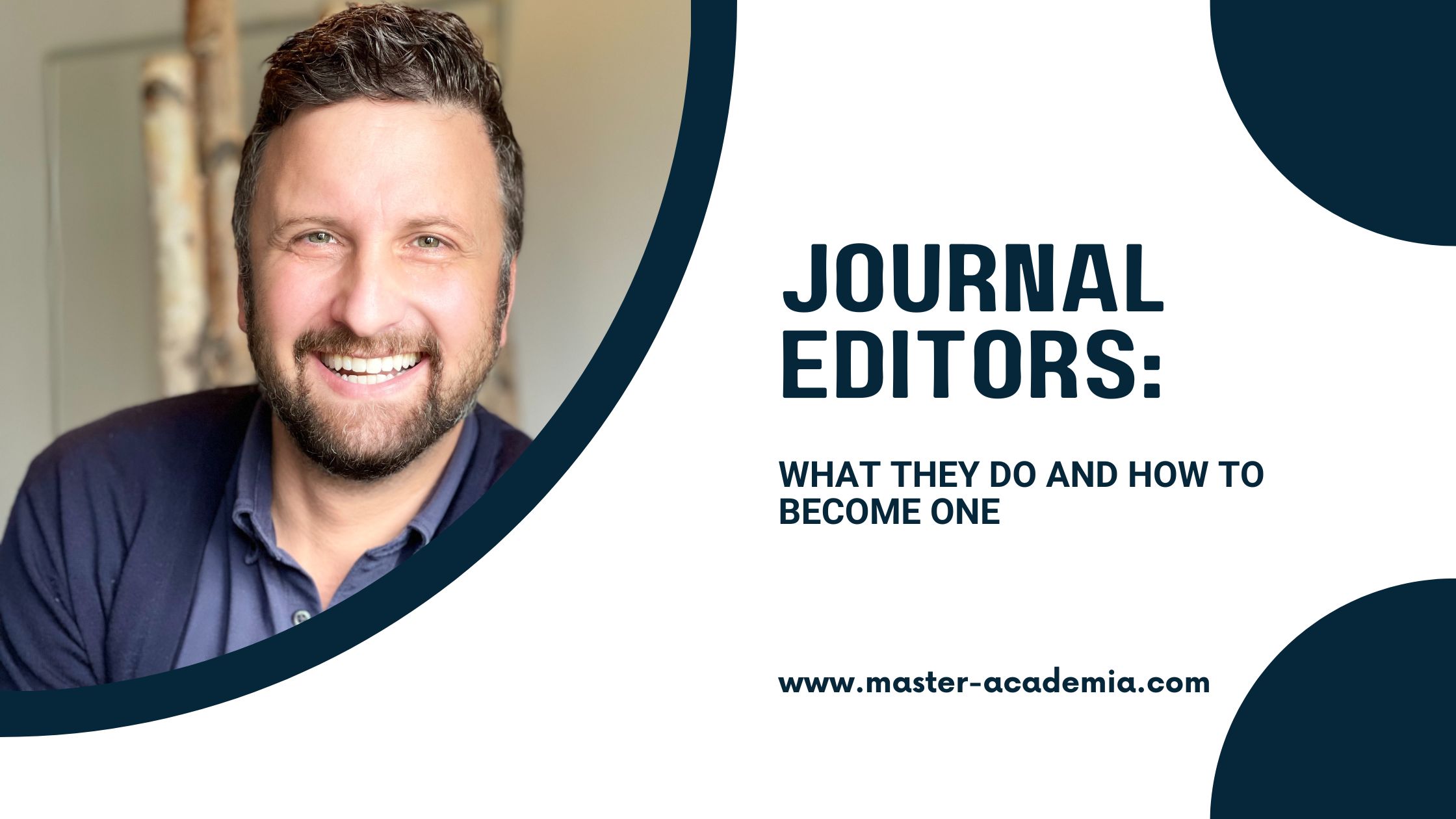
Journal editors: What they do, and how to become one
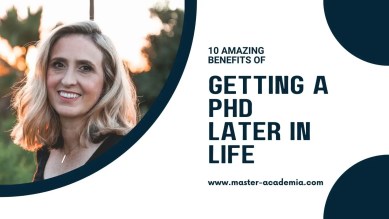
10 amazing benefits of getting a PhD later in life

The best answers to “Why do you want to do a PhD?”
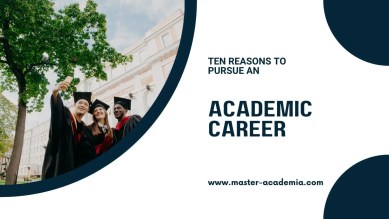
Ten reasons to pursue an academic career

- Part Time PhDs – Everything You Need To Know
- Types of Doctorates
Introduction
Whilst the core activities of a part time PhD are identical of that to a full time PhD, its arrangement is different. This difference is not only in programme duration but also in fees and funding opportunities. In addition to this, part time study also has different benefits and challenges. Therefore, whilst your personal situation may not be ideal for a full time PhD, it could be perfect for a part time one. We’ve outlined these differences as well as the pros and cons of part time study to help you decide whether it’s right for you.
Why Do a Part Time PhD?
Undertaking a part time PhD can be a great option for you if you fall into one of the four categories:
- Financial – a part time PhD provides the opportunity to earn whilst you study. Although you could secure a full time studentship, the stipend it offers may not be enough in all cases, for example, if you’re financially responsible for multiple family members.
- Career – working individuals, especially those who have already advanced several stages in their career, may opt for a Professional Doctorate. A Professional Doctorate is equivalent to a part time PhD, but focuses on a specific professional practice relevant to the individual. It’s usually undertaken when you wish to apply research skills in a professional environment or become more specialised in your industry.
- Caring obligations – part time study offers a greater deal of flexibility compared to its full time equivalent. This can be desirable in situations where the individual has considerable caring obligations, such as a young family.
- Intensity – many students feel that a pursuing a research degree over a longer period of time drastically lowers the intensity of postgraduate study. Part time PhD hours per week are typically around half that of its full time equivalent. This can come with a wide range of physical and mental health benefits.
Part Time PhD Fees
The average tuition fee for part time PhD study in the UK is approximately £2,356 per academic year for home students, and between £8,000 to £12,500 for international students.
This is typically 50% of the fee charged for an equivalent full time doctorate. However, a handful of universities use a prorated fee of up to 60% so it’s important to check the individual fees for each university you are applying to. These additional costs usually cover the admin/overhead fees associated with your time at the university.
Besides the tuition fee, there are several other costs which you need to account for. You can learn about these costs in our full cost breakdown of UK PhDs .
Part Time PhD Funding and Scholarships
As a part time student, most universities will expect you to fund your own studies. This is because nearly all part-time students will work a paying job alongside their studies which can be used to support their education.
However, you may still apply to department or university funding opportunities such as subject-specific bursaries. Besides this, external bodies such as Research Councils , research charities and industrial institutions also offer grants and PhD studentships for research projects related to their field. It’s worth remembering these opportunities are usually very limited and are awarded based on a candidates strength and not their personal situation.
One benefit of selecting a research project related to your employer is that it opens an additional opportunity for funding. It’s not uncommon for an employer to contribute to an employee’s tuition fee if there is a mutual benefit to be had.
How Long Is a Part Time PhD?
The average duration of part time PhDs in the UK is between 6 to 7 years. This is double a full time doctorate.
Universities also set registration periods which limit the minimum and maximum amount of time you can be enrolled in a course. For doctorates, the minimum duration is usually 4 years and the maximum 8 years.
How Many Working Hours per Week?
You will be expected to work half the number of hours of a full time student. Although full time students are expected to work 35 hours a week, in reality, most will work closer to 40 – 45 hours. Therefore, you’ll be expected to dedicate approximately 20 hours each week towards your degree.
However, you won’t always be able to achieve this many hours due to your other commitments. Therefore, working to a frequent and consistent schedule will be more important. Working on your research in irregular intervals or whenever time permits will be an inefficient approach – it’s far better, plus psychologically easier, to commit to a consistent schedule. Though your PhD supervisor may be able to offer guidance in this regard, ultimately the PhD is yours to shape.
Most part time programmes will also have some doctoral training courses with fixed dates, especially those which are organised by industry experts or visiting lecturers. There may also be time restrictions to be aware of if you are a postgraduate researcher involved in laboratory work, particularly where special equipment is needed as this may be rented by the university research centre and only available during certain times in the year.
Part Time PhDs for International Students
If you are an international student wishing to undertake a part time PhD programme in a foreign country, you will need to meet additional requirements.
For example, to study in the UK, you will need to secure both a work visa and a stable job. This is to prove that you can support yourself throughout the full length of your course. Unfortunately, even if you’re able to secure departmental or external funding, you won’t be able to use this to prove an income. Additionally, an international PhD student in the UK will need to demonstrate English proficiency as part of the application process. These entry requirements apply whether the overseas student is pursuing a PhD part-time or for full-time studies.
Finding a PhD has never been this easy – search for a PhD by keyword, location or academic area of interest.
Challenges of a Part Time PhD
It’s generally accepted that undertaking a PhD part time is more challenging than undertaking it full time.
Age – although this shouldn’t be a factor, we know it can cause concern for some. If you have already been working for several years, you may find that some of your research colleagues or academic staff members are the same age or younger than yourself. This could cause apprehension or cultural issues if you fail to keep an open mind.
Detachment – as a research student, you’ll often doubt whether you’re working on the right thing or making sufficient progress. You can expect this feeling to be compounded if you’re studying on a part time basis. This is because you’ll have less interaction with your department, peers and supervisor given you won’t always be on campus.
Time management – juggling a career or significant family obligations with the demanding requirements of a doctoral degree can take its toll. Over the 6 to 7 years, you’ll no doubt encounter periods when your external commitments require more of your time, whether its intensive projects or the need for frequent travel associated with part time courses. During these times there is potential for your research to slip, or worse, become an unwanted burden.
Motivation – having to balance your time and focus with your other commitments can make it difficult to immerse yourself in your research. This often results in a lack of ‘momentum’, which coupled with a journey that’s twice as long, increases the risk of your passion fading out. Unfortunately, because of this, many supervisors observe the drop-out rate of part time students to be greater than that of their full time peers. This isn’t due to a lack of dedication or commitment, but due to the individual no longer being able to balance several demanding obligations without jeopardising their mental or physical well-being.
Funding opportunity availability – as mentioned earlier, since part-time applicants are able to work alongside their studies, there are fewer funding opportunities available to them.
Relevancy – as your doctoral study will take 6 to 7 years to complete, there is a risk that your research will no longer be relevant. This could be for several reasons. For example:
- An individual may be working on a research project very similar to yours. Assuming they are working full time and complete their project before you, it could render your project ‘unoriginal’ depending on the amount of overlap between your findings. It is important to discuss this with potential supervisors who may be aware of similar PhD projects being undertaken.
- New technology or knowledge may be developed which renders your original research question obsolete if the premise it was built on becomes ’outdated’.
- New observations could be made which have the potential to jeopardise your work. For example, a new study may be published which identifies significant limitations behind a method outlined in your research proposal. This would cast serious doubt into the validity of your research findings, and in some cases, may require you to start over with an alternative method.
Browse PhDs Now
Join thousands of students.
Join thousands of other students and stay up to date with the latest PhD programmes, funding opportunities and advice.
Part-time PhD Programs

Tufts School of Engineering’s part-time PhD Program helps working professionals achieve their education and career goals. Conduct cutting-edge research and develop new technologies with our world-class faculty, all while maintaining your employment in industry.
Our part-time PhD program is tailored for industry professionals who receive full financial support from their employers. Financial arrangements between the employee and employer must be agreed upon in advance. Tufts University does not offer stipends, scholarships, discounts, or financial support for this program. Part-time PhD students are not eligible for TA/RA positions, grading roles, or any other paid positions within the university. We strongly advise applicants to seek employer permission before considering external work. It's essential to adhere to employment agreements and program policies to ensure compliance.
Qualified domestic students who are interested in continued learning, developing their skill set, or expanding their career path are encouraged to apply. This program is not available to international applicants unless they are currently working for a U.S. company. No visas can be issued for part-time PhD students.
How to Apply
All applicants must submit the following materials: Contact an advisor or faculty member Contact the advisor or faculty member with whom you would like to study to talk about the specific requirements. Before applying you must first have a discussion with a faculty member to confirm that there is mutual interest in the research the applicant intends to pursue. A successful discussion and any agreement among the candidate and faculty member does not supersede the formal application process. All applicants must formally apply. The application will be reviewed following all the processes and guidelines established for SOE graduate applicants.
Online Application for Admission Note: An application fee of $85 is payable through the online application by credit card or e-check (drawn on a U.S. bank). The application fee is not refundable. Your credit card or e-check statement is your receipt. Applications cannot be reviewed until this fee has been received. Check our website to see if you are eligible for a fee waiver. Start or resume your application here .
Academic Records Applicants are required to upload a copy of transcripts received from each accredited college or university attended, where credit was earned toward an undergraduate, graduate, or professional degree. Transcripts for study abroad or transfer programs are not required if the course titles, grades, and credit hours are included on the transcript of the degree-granting institution. If the transcript is in a language other than English, you are required to provide a certified, official translation into English. If you are admitted and decide to enroll, you will be required to request the official hard copy transcripts from all of your degree granting institutions be sent directly to our Office of Graduate Admissions, from that institution, before you can matriculate.
Graduate Record Examination (GRE) GRE scores are no longer required for candidates with an undergraduate or graduate degree from an accredited U.S. institution. Letters of Recommendation Most programs will require three letters of recommendation. Current Tufts students and alumni are only required to submit two letters. If an applicant submits three letters, one letter may be a commitment letter from your company that your studies will be supported. Letters of recommendation should be submitted through the online application system. If that is not possible, you may have your recommender email their letter as an attachment to [email protected], from a company/institutional/organization/professional email account. Personal Statement Applicants are required to upload a personal statement describing your reasons for wanting to pursue graduate study at Tufts in the program to which you are applying. Please limit your personal statement to a maximum of five pages. Refer to the Requirements and Deadlines to determine if the program to which you are applying has specific prompts. Résumé / CV A current résumé or CV that includes information about, and dates of your educational history, employment, academic honors, scholarships, publications, and other activities is required to be uploaded as part of your completed application.
> Spring applications need to be completed and submitted by September 15th .
> Fall applications need to be completed and submitted by December 15th .
Some exceptions may be made by the faculty member you will be working with.
Tuition and Fees
Students who enroll part-time in an engineering PhD program will be responsible for all tuition and fees charged at a per semester rate. No scholarships, financial aid, or stipends are available for these programs. Please visit https://asegrad.tufts.edu/tuition-aid/tuition-and-fees for more details.
Financial Aid and Employer Tuition Reimbursement
Low-interest Federal Direct Loans and Federal Perkins Loans are administered by Tufts Student Financial Services which maintains information on all federal programs as well as alternative forms of financing such as non-need-based loans. Federal aid is available for U.S. citizens and permanent residents only. To apply for Federal Direct loans, complete the Free Application for Federal Student Aid (FAFSA). The form is available online at www.fafsa.ed.gov, and the Tufts University Institution code is 002219. We recommend that you file the FAFSA by December 1 for spring admission and by March 1 for fall admission.
Tuition reimbursement/Tuition assistance is an employee benefit through which an employer pays for a predetermined amount of continuing education credits or college coursework to be applied toward a degree. These programs are intended for employees looking to advance their careers and educational goals by increasing their industry knowledge and developing advanced skills.
PhD Programs
Faculty members.
Below you will find faculty members who are eager to receive part-time PhD applications. Click on the department heading for a list of available faculty members.
Biomedical Engineering
Chemical and biological engineering, civil and environmental engineering, computer science, electrical and computer engineering, mechanical engineering.

Pursuing A Part-Time Phd In Computer Science: What You Need To Know
Earning a PhD is the pinnacle of academic achievement in computer science, opening doors to research, teaching, and leadership roles. But taking 4+ years off work for a full-time program isn’t feasible for everyone.
Part-time PhD options allow professionals to attain this goal while continuing their careers.
If you’re short on time, here’s the key takeaway: Part-time CS PhD programs typically take 5-7 years to complete . They provide flexibility for working students but require diligence to balance school, research, and professional demands.
The Benefits of a Part-Time CS PhD
Progress academically without leaving your job.
A part-time PhD in Computer Science offers the unique opportunity to advance your academic career while still maintaining your professional commitments. This flexibility allows you to continue working in your current job, providing financial stability and practical application of your studies.
Balancing work and study can be challenging, but the rewards are worth it. By pursuing a part-time PhD, you can deepen your knowledge in your chosen field and make significant contributions to the advancement of computer science.
Network with faculty and peers in your field
One of the key advantages of pursuing a part-time PhD in Computer Science is the opportunity to network with esteemed faculty members and like-minded peers who share your passion for the subject. Interacting with experts in the field can provide valuable insights, guidance, and collaboration opportunities.
Attending conferences, workshops, and seminars can further expand your network and expose you to the latest developments in computer science. Building these connections can open doors to new opportunities and enhance your career prospects.
Strengthen research skills and resume
A part-time PhD program allows you to develop and refine your research skills, which are highly valued in the field of computer science. Through conducting in-depth research, analyzing data, and writing scholarly papers, you can enhance your ability to critically think, problem solve, and contribute to the body of knowledge in your area of expertise.
Moreover, having a PhD in Computer Science on your resume demonstrates your dedication, perseverance, and expertise, making you a highly sought-after candidate for both academic and industry positions.
Program Structure and Requirements
Reduced course load each semester.
Pursuing a part-time PhD in Computer Science offers flexibility in terms of course load. Unlike full-time students, part-time students typically take a reduced number of courses each semester. This allows them to balance their academic commitments with other personal and professional responsibilities.
By taking fewer courses at a time, part-time students can focus on their coursework more effectively and ensure a better understanding of the material.
Original dissertation research
The cornerstone of a part-time PhD program in Computer Science is the dissertation research. Students are required to embark on an original research project under the guidance of a faculty advisor. This research should contribute to the existing body of knowledge in the field and demonstrate a deep understanding of a specific area of computer science.
The research can involve developing new algorithms, designing innovative software systems, or exploring cutting-edge technologies.
Qualifying exams and proposal defense
Part-time PhD students in Computer Science are typically required to pass qualifying exams to demonstrate their readiness for conducting research. These exams assess the student’s knowledge and understanding of the core concepts in the field.
Once the exams are passed, students need to prepare a research proposal outlining the objectives, methodology, and expected contributions of their dissertation. The proposal is then defended in front of a committee of faculty members who evaluate its feasibility and significance.
It’s important to note that the specific structure and requirements of a part-time PhD program in Computer Science may vary depending on the institution. It is advisable to consult the program’s official website or contact the program coordinator for more detailed information.
Finding the Right Program
When pursuing a part-time PhD in Computer Science, finding the right program is crucial for success. Here are some key factors to consider:
On-campus and online options
One of the first decisions to make is whether to pursue your PhD on-campus or online. On-campus programs offer the benefit of face-to-face interactions with professors and fellow students, while online programs provide flexibility for those who are working or have other commitments.
It’s important to weigh the pros and cons of each option and choose the one that aligns best with your lifestyle and goals.
Focus on faculty research expertise
Another important factor to consider when choosing a program is the faculty’s research expertise. Look for programs where the faculty members have research interests and expertise that align with your own.
This will ensure that you receive guidance and mentorship from experts in your field of interest. Additionally, professors with strong research backgrounds can provide valuable networking opportunities and connections in the industry.
Funding availability
Funding is a significant consideration for many part-time PhD students. Look for programs that offer funding options such as scholarships, grants, or assistantships. These can help alleviate the financial burden and allow you to focus on your studies.
It’s also worth exploring external funding opportunities from organizations or government agencies that support research in your field.
Managing Your Time Effectively
Stay organized with schedules and goals.
When pursuing a part-time PhD in computer science, time management becomes crucial. It is important to create a schedule that includes dedicated study hours, research time, and coursework completion. By setting goals for each week or month, you can track your progress and ensure that you are staying on track.
One effective strategy is to use a planner or a digital calendar to keep track of deadlines, meetings, and other important events. By having a visual representation of your commitments, you can prioritize your tasks and allocate time accordingly.
Additionally, breaking down larger tasks into smaller, manageable chunks can help you stay organized and prevent overwhelm. By setting realistic goals for each study session, you can make progress towards your PhD while still managing other responsibilities.
Communicate needs clearly at work
When pursuing a part-time PhD, it is essential to communicate your needs with your employer or colleagues. Letting them know about your academic commitments and the time required for your studies can help them understand your availability and make necessary adjustments.
Consider having a conversation with your supervisor or manager to discuss your situation and explore potential flexible working arrangements. This could include adjusting your work schedule, reducing your workload, or even exploring opportunities for research collaboration between your job and your PhD.
Open and honest communication can go a long way in ensuring that both your work and academic responsibilities are managed effectively.
Leverage support systems
Pursuing a part-time PhD can be challenging, but you don’t have to do it alone. It is crucial to leverage the support systems available to you.
Reach out to your academic advisor or supervisor for guidance and support. They can provide valuable insights on managing your time, selecting courses, and balancing your academic and work commitments.
Additionally, consider joining or forming study groups with fellow part-time PhD students. Collaborating with others who are facing similar challenges can provide a sense of camaraderie and support. You can share study materials, discuss research ideas, and offer each other encouragement along the way.
Lastly, don’t forget about the support of your family and friends. Let them know about your academic journey and the challenges you may face. Their understanding and encouragement can help you stay motivated and focused on your goals.
Remember, pursuing a part-time PhD in computer science requires dedication, discipline, and effective time management. By staying organized, communicating your needs, and leveraging support systems, you can successfully navigate this exciting academic journey while maintaining a balance with your work and personal life.
Completion, Careers and Next Steps
Job prospects post-phd.
Completing a part-time PhD in computer science opens up a world of exciting job prospects. With a doctoral degree in this field, you are well-equipped to pursue highly specialized positions in both industry and academia.
The demand for computer science professionals continues to grow, and obtaining a PhD can give you a competitive edge in the job market. According to the Bureau of Labor Statistics, the employment of computer and information research scientists is projected to grow 15 percent from 2019 to 2029, much faster than the average for all occupations.
This means that there will be ample opportunities for individuals with advanced degrees in computer science.
Potential teaching and research roles
One of the key benefits of earning a PhD in computer science is the opportunity to pursue teaching and research roles. Many universities and research institutions are constantly seeking experts in the field to join their faculty and contribute to cutting-edge research.
As a PhD holder, you can become a professor, teaching and mentoring the next generation of computer scientists. Additionally, you can engage in research projects, pushing the boundaries of knowledge in the field and making significant contributions to the advancement of technology.
The opportunity to share your expertise and make a lasting impact in the academic community is truly rewarding.
Higher salaries and senior positions
Earning a PhD in computer science can also lead to higher salaries and senior positions. With the advanced knowledge and skills gained during your doctoral studies, you become a valuable asset to companies and organizations.
Employers often recognize the expertise and dedication required to complete a PhD, and are willing to offer higher salaries to attract and retain top talent. In addition, holding a doctoral degree can open doors to senior management and leadership positions, where you can have a greater influence on strategic decisions and shape the direction of the company.
According to a survey conducted by the National Association of Colleges and Employers, computer science PhD graduates earned an average starting salary of $123,000 in 2020, significantly higher than those with a bachelor’s or master’s degree.
While requiring diligence and time management skills, part-time computer science PhD programs make this high-level credential attainable for busy professionals. From strengthening your research abilities to opening new career doors, the long-term benefits of earning a PhD on a flexible schedule are immense.
If you’re willing to balance work, research, and coursework, a part-time CS PhD can help you achieve your pinnacle academic and career aspirations.
Similar Posts
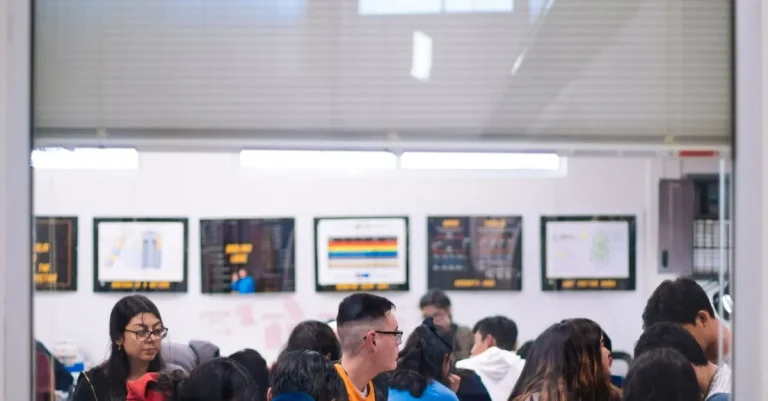
Essential Science Courses To Take In High School
Science plays a pivotal role in high school education. Not only does it teach critical thinking and problem-solving skills, but it lays the foundation for pursuing STEM careers. For students interested in science, choosing the right courses is crucial. If you’re short on time, here’s a quick answer: The main science subjects offered in high…
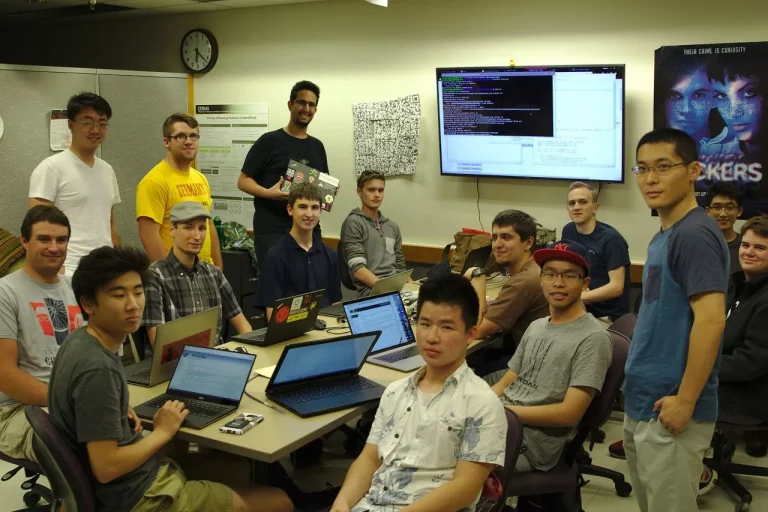
Purdue University Computer Science Acceptance Rate: An In-Depth Look
If you’re looking to study computer science at Purdue University, you’re probably wondering about your chances of getting in. With Purdue’s prestigious engineering program and large research footprint, admission to their computer science major is quite competitive. In this comprehensive guide, we’ll provide an in-depth look at Purdue’s computer science acceptance rates over the past…
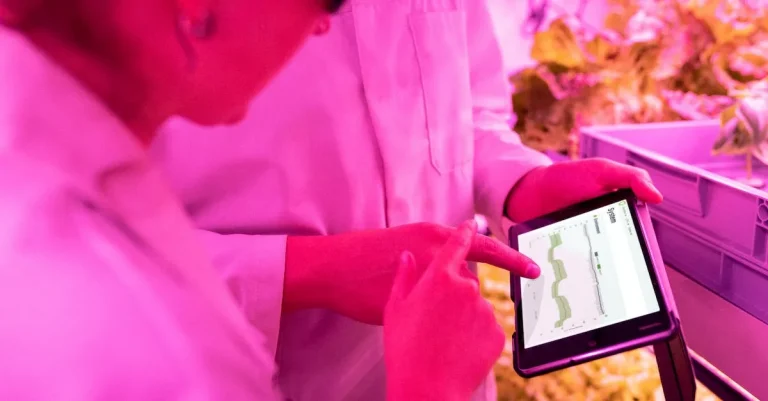
Exponential Growth Definition In Environmental Science
In environmental science, exponential growth describes the rapid increase of a population over time, where the growth rate becomes faster as population size expands. This accelerating pattern can have major ecological impacts. If you’re short on time, here’s a quick exponential growth definition: Exponential growth in environmental science refers to an exponentially increasing growth rate…

Doctor Of Science Vs Phd: What Are The Key Differences?
For those considering an advanced research degree, two options often come to mind – the Doctor of Science (DSc) and the Doctor of Philosophy (PhD). But what exactly is the difference between these two doctoral degrees? In this comprehensive guide, we’ll examine the key distinctions between the DSc and PhD, from program focus and format…

The Origins And Impact Of The Neil Degrasse Tyson Meme
Neil deGrasse Tyson, the famed astrophysicist and science communicator, has become an unlikely internet meme sensation over the past decade. His face and voice have been plastered across image macros, reaction GIFs, and viral video edits, cementing Tyson’s status as one of the most recognizable figures in modern science. But where did this meme-ified version…

What Is A Social Science Perspective?
The social sciences offer a unique lens for examining the world around us. From psychology to anthropology, these fields provide insights into human behavior, relationships, institutions, and more. If you’re looking to better understand society and the forces that shape it, exploring social science perspectives is key. If you’re short on time, here’s a quick…
25 Best Part Time PhD Programs [2024 Guide]
Explore part time PhD programs. Compare schools and see why you should consider earning your doctorate part time.

If work or other responsibilities have been holding you back from diving headfirst into doctoral studies, consider part time PhD programs instead.
Editorial Listing ShortCode:
You may enroll in an on-campus or online PhD program to earn your doctoral credentials on a schedule that fits your busy lifestyle.
Universities Offering PhD and Other Doctorate Programs Online
Methodology: The following school list is in alphabetical order. To be included, a college or university must be regionally accredited and offer degree programs online or in a hybrid format.
1. Andrews University
Andrews University is a private university in Berrien Springs, Michigan, that is affiliated with the Seventh-day Adventist Church. Founded in 1874, Andrews has a current annual enrollment of 3,366.
Students can pursue 130 undergraduate and 70 graduate majors across eight schools and colleges. Degrees at the bachelor’s, master’s, and doctoral levels are available.
- PhD in Curriculum and Instruction
- PhD in Educational Leadership
- PhD in Higher Education Administration
- PhD in Leadership
Andrews University is accredited by the Higher Learning Commission.
2. Clemson University
Clemson University is a public research university located in Clemson, South Carolina. Founded in 1889, Clemson boasts an annual student enrollment nearing 30,000. U.S. News & World Report ranks Clemson University in 24th place among all public universities.
Students can pursue bachelor’s, master’s, and doctoral degrees across Clemson’s seven schools and colleges.
- PhD in Healthcare Genetics
- PhD in Parks, Recreation and Tourism Management
- PhD in Rhetorics, Communication and Information Design
Clemson University is accredited by the Southern Association of Colleges and Schools Commission on Colleges.
3. George Washington University
Chartered in 1821 by an act of the United States Congress, George Washington University stands today as a private research university with an annual enrollment of more than 27,000. GWU is divided into 14 colleges and schools offering bachelor’s, master’s, and doctoral programs.
The Princeton Review consistently ranks George Washington University as a top college in a number of categories. In addition, GWU has been ranked as one of the Top Universities for Producing Billionaires by the Times Higher Education’s World University Rankings.
- PhD in Nursing
- PhD in Systems Engineering
GW is regionally accredited by the Middle States Commission on Higher Education.
4. Hampton University
Hampton University is a private, historically black university located in Hampton, Virginia, that was founded in 1868. The university is comprised of 10 accredited schools and colleges offering 50 bachelor’s programs, 26 master’s programs, and seven doctoral programs. The Alumni Factor has named Hampton one of the best colleges in Virginia.
- PhD in Business Administration
- PhD in Educational Management
Hampton University is accredited by the Commission on Colleges of the Southern Association of Colleges and Schools.
5. Indiana State University
Indiana State University is a public university located in Terre Haute, Indiana, with a history dating back to 1865. ISU offers more than 100 undergraduate majors and 75 graduate. Students can pursue 20 bachelor’s degrees, 22 master’s degrees, and seven doctoral degrees on campus and online through ISU’s six academic colleges.
- PhD in Educational Administration – Higher Education Leadership
- PhD in Educational Administration – School Administration
- PhD in Technology Management
Indiana State University is accredited by the Higher Learning Commission.
6. Keiser University
Keiser University is a private university based in Fort Lauderdale, Florida. Founded in 1977, Keiser offers bachelor’s, master’s, and doctoral programs available both on campus and online. Money magazine has rated Keiser University one of the top colleges for the money in Florida. Nearly 20,000 students study at Keiser.
- PhD in Criminal Justice and Criminology
- PhD in Industrial and Organizational Psychology
- PhD in Instructional Design and Technology
Keiser University is accredited by the Southern Association of Colleges and Schools Commission on Colleges.
7. Liberty University
Liberty University is a private evangelical Christian university founded in Lynchburg, Virginia, in 1971. The school consists of 17 distinct colleges offering a wide variety of bachelor’s, master’s, and doctoral programs. Programs are divided between 366 on-campus options and 280 online options.
- PhD in Bible Exposition
- PhD in Communication
- PhD in Criminal Justice
- PhD in Criminal Justice – Homeland Security
- PhD in Criminal Justice – Leadership
- PhD in Education – Curriculum and Instruction
- PhD in Education – Instructional Design and Technology
- PhD in Education – Organizational Leadership
- PhD in Education – Special Education
- PhD in Higher Education Administration – Educational Leadership
- PhD in History
- PhD in Nursing – Nursing Education
- PhD in Psychology – Developmental Psychology
- PhD in Psychology – Industrial/Organizational Psychology
- PhD in Psychology – Social Psychology
- PhD in Public Policy
- PhD in Public Policy – Economic Policy
- PhD in Public Policy – Education Policy
- PhD in Public Policy – Foreign Policy
- PhD in Public Policy – National Security
- PhD in Public Policy – Social Policy
- PhD in Strategic Media
- PhD in Theology and Apologetics
Liberty University is accredited by the Southern Association of Colleges and Schools Commission on Colleges.
8. Mississippi State University
Mississippi State University is a public research university located near Starkville, Mississippi, that is classified among RI Doctoral Universities for very high research activity. MSU’s more than 22,000 enrolled students can pursue more than 180 areas of study for bachelor’s, master’s, and doctoral degrees. The school was founded in 1878.
- PhD in Community College Leadership
- PhD in Computational Engineering
- PhD in Electrical and Computer Engineering
- PhD in Engineering – Aerospace Engineering
- PhD in Engineering – Civil Engineering
- PhD in Engineering – Mechanical Engineering
- PhD in Industrial & Systems Engineering
Mississippi State University is accredited by the Southern Association of Colleges and Schools Commission on Colleges.
9. North Carolina A&T State University
North Carolina Agricultural and Technical State University is a public, historically black university located in Greensboro, North Carolina. The school was founded in 1891 by the North Carolina General Assembly. It is ranked among the top historically black colleges and universities (HBCUs) by U.S. News & World Report.
A total of 54 bachelor’s, 29 master’s, and nine doctoral degrees are offered through the school’s eight colleges.
- PhD in Leadership Studies
North Carolina Agricultural and Technical State University is accredited by the Southern Association of Colleges and Schools Commission on Colleges.
10. Texas Tech University
Established in 1923, Texas Tech University is a public research university in Lubbock, Texas, featuring 13 colleges and 60 research centers. The Princeton Review has ranked Texas Tech among the 125 best colleges in the Western United States.
Texas Tech offers 150 options for bachelor’s degrees, 110 options for master’s degrees, and 59 doctoral degree programs.
- PhD in Curriculum and Instructions – Curriculum Studies and Teacher Education
- PhD in Curriculum and Instructions – Language, Diversity & Literacy Studies
- PhD in Curriculum and Instructions – STEM
- PhD in Educational Leadership Policy
- PhD in Family and Consumer Science Education
- PhD in Special Education
Texas Tech University is accredited with the Southern Association of Colleges and Schools Commission on Colleges.
11. University at Buffalo
Founded in 1846, the University at Buffalo a public research university with campuses in Buffalo and Amherst, New York. Nearly 32,000 students are enrolled in what is considered to be the largest public university in New York. UB offers bachelor’s, master’s, and doctoral degrees across 13 academic schools and colleges.
- PhD in Information Science
The University at Buffalo is accredited by the Middle States Commission on Higher Education.
12. University of Alabama – Huntsville
The University of Alabama in Huntsville was founded in 1950. It is one of three members of the University of Alabama System. UAH school awards 44 bachelor’s, 30 master’s and 15 doctoral degrees across nine colleges to a study body of nearly 10,000.
UAH is a space-grant university with a large focus on engineering and science programs.
- PhD in Civil Engineering
- PhD in Engineering Management
- PhD in Industrial Engineering
- PhD in Joint Nursing Science
UAH is accredited by the Southern Association of Colleges and Schools Commission on Colleges.
13. University of Colorado – Denver
A member of the University of Colorado system, the University of Colorado Denver is a public research facility offering hundreds of degree programs for bachelor’s, master’s, and doctoral studies across dozens schools and colleges.
Total annual enrollment stands at 24,910. Forbes places the University of Colorado Denver 34th on the its list of best public colleges.
University of Colorado – Denver is accredited by the Higher Learning Commission.
14. University of Florida
The University of Florida is a public land-grant, sea-grant, and space-grant research university with a main campus in Gainesville, Florida. This senior member of the State University System of Florida offers bachelor’s, master’s, and doctoral programs to the more than 56,000 students that enroll annually.
The list of notable UF alumni includes Erin Andrews, Emmitt Smith, Faye Dunaway, and Marc Rubio.
- PhD in Classical Civilization
- PhD in Latin and Roman Studies
The University of Florida is regionally accredited by the Southern Association of Colleges and Schools.
15. University of Kansas
The University of Kansas is a public research university based in Lawrence, Kansas. Founded in 1865, KU offers more than 345 degree programs for bachelor’s, master’s, and doctoral studies. KU has an annual enrollment of more than 28,400 students.
The school’s faculty and alumni list includes four NASA astronauts, seven Pulitzer Prize winners, 27 Rhodes Scholars, and 325 Fulbright Scholars.
The University of Kansas is accredited by the Higher Learning Commission.
16. University of Missouri
The University of Missouri was founded in 1839 as the flagship of the University of Missouri System. Mizzou currently offers more than 300 bachelor’s, master’s, and doctoral degree programs across 13 major academic divisions for its more than 30,000 enrolled students.
- PhD in Architectural Studies
The University of Missouri is accredited by the Higher Learning Commission.
17. University of North Carolina – Greensboro
The University of North Carolina at Greensboro is a public research university located in Greensboro, North Carolina, that dates back to 1891. This school with an annual enrollment topping 20,000 is part of the University of North Carolina system.
More than 100 bachelor’s, 61 master’s, and 26 doctoral programs are offered at UNCG.
The University of North Carolina at Greensboro is accredited by the Southern Association of Colleges and Schools Commission on Colleges.
18. University of North Dakota
Located in Grand Forks, the University of North Dakota offers 90 bachelor’s majors, 54 master’s programs, and 27 doctoral programs. UND was founded in 1883. Currently, UND has an annual enrollment of 13,581 students spread across its 10 academic divisions. The school’s athletic teams compete in the NCAA’s Division I.
- PhD in Aerospace Sciences
- PhD in Biomedical Engineering
- PhD in Chemical Engineering
- PhD in Electrical Engineering
- PhD in Energy Engineering
- PhD in Environmental Engineering
- PhD in Indigenous Health
- PhD in Petroleum Engineering
The University of North Dakota is accredited by the Higher Learning Commission of the North Central Association of Colleges and Schools.
19. University of South Carolina
The University of South Carolina is a public research university located in Columbia, South Carolina. The more than 35,000 students enrolled at USC today can study toward bachelor’s, master’s, and doctoral degrees from 14 degree-granting colleges and schools. The school’s history dates back to 1801.
- PhD in Computer Engineering
- PhD in Computer Science
- PhD in Mechanical Engineering
- PhD in Nuclear Engineering
University of South Carolina is accredited by the Southern Association of Colleges and Schools Commission on Colleges.
20. University of South Dakota
The University of South Dakota is a public research university in Vermillion, South Dakota, with an enrollment of nearly 10,000 students. The university is divided between seven colleges offering hundreds of bachelor’s, master’s, and doctoral degrees. USD’s campus is home to the National Music Museum. The school was founded in 1862.
- PhD in Health Sciences
USD is accredited by the North Central Association of Colleges and Secondary Schools.
21. University of Southern Mississippi
The University of Southern Mississippi is a public research university with a main campus located in Hattiesburg, Mississippi. Southern Miss awards bachelor’s, master’s, and doctoral degrees across more than 189 programs. Founded in 1910, the school boasts an annual enrollment of more than 14,00 students.
Southern Mississippi’s academic offerings are divided across four colleges and schools.
- PhD in Nursing Leadership
The University of Southern Mississippi is accredited by the Southern Association of Colleges and Schools Commission on Colleges.
22. University of Tennessee – Knoxville
Founded in 1794, the University of Tennessee is a public research university located in Knoxville, Tennessee. UT offers bachelor’s, master’s, and doctoral degrees across 10 undergraduate colleges and eleven graduate colleges. Annual enrollment stands at close to 29,000 students.
Established two years before Tennessee officially became a state, the University of Tennessee is one of the oldest public universities in the country.
- PhD in Industrial and Systems Engineering – Engineering Management
The University of Tennessee – Knoxville is accredited by the Southern Association of Colleges and Schools Commission on Colleges.
23. University of the Cumberlands
The University of the Cumberlands is a private university located in Williamsburg, Kentucky, dating back to 1888. Bachelor’s, master’s, and doctoral programs in a variety of specialties in the arts and sciences are offered across four colleges. Total annual enrollment is 13,476.
University of the Cumberlands is accredited by the Southern Association of Colleges and Schools Commission on Colleges.
24. Virginia Commonwealth University
Virginia Commonwealth University is a public research university located in Richmond, Virginia, with a history dating back to 1838. VCU offers more than 217 programs for bachelor’s, master’s, and doctoral degrees across 11 schools and three colleges.
U.S. News & World Report has classified VCU as a Tier 1 University that ranks in 84th place among all public colleges and universities in the United States.
- PhD in Health Related Sciences
VCU is accredited by the Southern Association of Colleges and Schools Commission on Colleges.
25. West Virginia University
Founded in 1875, West Virginia University is a public research university with a main campus in Morgantown, West Virginia. More than 350 academic programs for bachelor’s, master’s, doctoral, and professional degrees are offered through 14 schools and colleges for the nearly 30,000 students who enroll at WVU annually.
Designated among the R1 Research Universities for very high research activity, WVU boasts research partnerships with the Rockefeller Neurosciences Institute and the Federal Bureau of Investigation.
West Virginia University is accredited by the Higher Learning Commission.
Do Part Time PhD Programs Exist?

Yes, part time PhD programs do exist. Universities know that many people have packed schedules. To accommodate busy students, some schools give the option of part-time enrollment in PhD programs online or on-campus.
The idea is that you may work your way through one of these programs while still living at home and holding a regular job — no uprooting your life required.
Many part-time PhD programs are offered online, which can be particularly convenient. Online college allows you to attend the university of your choice without having to move away from your hometown.
You may take classes online, chat digitally with your academic advisors, and work on your dissertation from the comfort of your own home. Even still, there may be some in-person residencies or practicums required.

Finances are one of the best reasons to enroll in a part-time online program. The paycheck that you bring in each week can help you afford your grad school tuition without living on ramen noodles for five years straight.
Of course, being able to hold a full-time job while going through your doctoral program is more than just a way to make money. Particularly if your field of study is relevant to your job, you may find many opportunities to connect your classroom studies to real-world experiences.
It’s even possible that a situation at work may provide inspiration for the topic of your doctoral dissertation. If you feel that a dissertation may prevent you from finishing your PhD, then a professional doctorate may be a better choice.
For example, doctor of education programs don’t require dissertations in many cases. Instead, students may complete a final capstone project to demonstrate subject mastery.
Part-time students don’t make up the majority of doctoral candidates; even still, you certainly won’t be the only one if you choose to go this route. In the past year, approximately 44% of doctoral students were enrolled in part-time programs .
What Are the Most Popular PhD Programs?
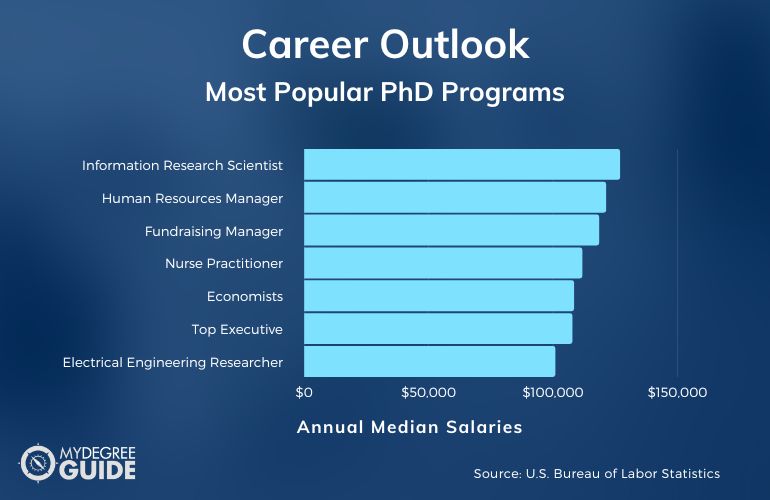
Doctorates are available in practically any field, but some are more common than others. The following table shows some of the top PhDs that you may be able to earn online.
According to the Bureau of Labor Statistics, some related careers and their average salaries include:
Getting your doctorate may certainly increase your earning potential. According to the Bureau of Labor Statistics, the median annual salary for PhDs is $110,200. That’s a large jump from $78,210, the average annual earnings for those with a master’s degree.
How Do Part Time PhD Degree Programs Work?

To graduate from a part-time doctoral program, you’ll need to do the same work that you would for a full-time course of study. You’ll simply spread the work out over a longer stretch of time.
The first portion of your program will likely be devoted to classes. If you’re enrolled on a part-time basis, you’ll probably keep your course load light instead of taking multiple classes at once.
You may be able to take the classes online, but your school may require a few in-person residencies as well.
Some classes will focus on the research methods that are essential for all doctoral candidates to know, such as analyzing data and writing scholarly reports. At this point, you may also start thinking about a topic for your upcoming research project.

Other courses will be related to your field of study. While some classes may be required of every student in your PhD department, others may be electives. That way, you may build a course of study that is tailored to your career goals and research interests.
After completing your classes, your school may require oral or written testing as a way of assessing your knowledge.
Next, you’ll turn your attention toward your dissertation or another final project. This usually requires completing original research and reporting your findings in a detailed paper.
Even for full-time students, it may take several years to complete a dissertation. On a part-time basis, you may be working on this project even longer.
Once you finish your dissertation, the school’s faculty will need to approve it. Then, you’ll answer questions during a defense of your research. If the faculty determines that you have successfully defended your dissertation, you’ll then be awarded your PhD.
How Long Does It Take to Do a PhD Part Time?

How long it takes to complete your PhD through a part-time schedule is largely up to you and how much you can commit to your studies at any point in time.
You may find that there are some seasons in which you’re able to invest a good portion of your time and other seasons when you’re only able to do the bare minimum to keep going.
As a general rule, though, you should expect your part-time studies to last for several years. Being a part-time student won’t exempt you from any of the program’s requirements.
You’ll still need to earn just as many credit hours, complete any residency or internship experiences, and do the same final projects. The work will just be spread out over a longer period of time.

You should probably plan to work on your doctoral program for six to eight years. Some students take even longer. There may be a maximum duration allowed by your program, so be sure to discuss that with your faculty advisor.
Although part-time schooling is convenient, being enrolled in the same program for years on end may start to feel tedious. It’s important to choose an area of study that you really care about.
Your passion for your studies can keep you motivated even when graduation still seems a long way off.
Admission Requirements for a PhD

No matter what type of doctoral program it is, whether it is a part time or an online accelerated doctoral program , they can be competitive and you’ll want to make sure that your application stands out to the admissions committee. The first step is making sure that you meet the requirements and include all necessary documentation.
- Application and fee: Filling out this form gives the committee basic information about you, so be sure to complete it thoroughly. The fee will be non-refundable, even if you aren’t admitted.
- College transcripts: These demonstrate whether you have the appropriate academic background. You will need to hold a bachelor’s degree, and you may need a master’s degree as well. There may be minimum GPA scores required.
- Test scores: Many schools use GRE or GMAT scores to determine whether you have what it takes to succeed in a PhD program. If you’re an international applicant, you may also need TOEFL scores to demonstrate your proficiency with the English language.
- Letters of reference: These should come from academic or professional colleagues who can attest to your commitment and character. Two or three letters may be required.
- Personal statement or research proposal: This is your chance to communicate your study goals. That way, the school can determine whether your interests align with the expertise of the faculty.
Pay close attention to application deadlines. It’s smart to submit your materials a few weeks before the cutoff since schools don’t usually take late applications.
Accreditation for PhD Programs

Accreditation is a process in which an independent organization evaluates a college’s programs and results to determine whether the school is doing a good job of educating students. If the college is up to par, then it receives approval from an accrediting body.
The primary type of accreditation to consider is regional accreditation . There are seven U.S. organizations that have the right to grant regional accreditation.
There are fairly high standards for regional accreditation. As a result, this type of accreditation is well-respected, and employers are often more inclined to select candidates whose degrees come from regionally accredited schools.
Financial Aid for PhD Students
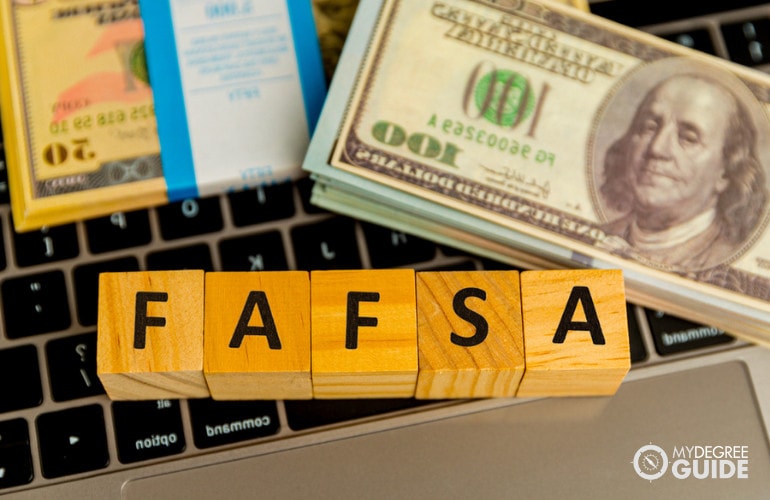
Paying for a doctorate out of pocket can be an overwhelming prospect, but there are a number of options for funding your PhD.
- Fellowships: Based on your personal merits, your school or a private organization may give you fellowship money intended to further your research goals.
- Government grants: If your income qualifies, you may get free tuition help from the state or federal government.
- Government loans: You may have the option to take out low-interest loans from the federal government or your state.
- Private loans: To supplement your financial package, you may also need private loans. Just be aware that these can come with high interest rates.
- Scholarships: You can apply for gift money from a scholarship-granting organization, such as a professional association in your field.
- Stipends: Some schools grant PhD candidates a small stipend. There are usually stipulations to this, and the rules may differ for part-time students.
To find out more, talk to your school’s financial aid department. Be sure to fill out the Free Application for Federal Student Aid (FAFSA) .
Also, if getting a doctorate could benefit your performance at work, you may be able to request tuition assistance from your employer.
Can You Do PhD Part Time?

Yes, you can do a PhD part time. Studying for a PhD doesn’t have to be all-or-nothing. Just as there are part time masters programs , you can likewise enroll in a doctoral program on a part-time basis.
With that approach, you may be able to go to work during the day and take classes or write papers in the evening. It may even be possible to complete the coursework online.
Is PhD Full Time or Part Time?
Both full-time and part-time PhD programs are available. Some people choose to earn their doctorates as quickly as possible by going to school full-time. Others opt to enroll part-time so that they may keep up with work or family responsibilities.
Keep in mind that not all schools give you the choice between full-time and part-time study; their traditional or online doctoral programs may be specifically designed for one or the other.
Is a PhD Worth It?

Yes, a PhD is worth it for many students. The U.S. Bureau of Labor Statistics projected a 5.9% job growth for doctoral or professional degree holders over the next 1o years, faster than the average for all occupations.
Getting a PhD may open new doors. Earning this top degree may grant you entrance into academia as a researcher or a professor.
It may also prepare you to assume high leadership roles and earn more money in your field. Plus, there’s often a sense of personal satisfaction that comes from accomplishing a huge goal like earning a PhD.
If you’re ready to put those three letters after your name, then it’s time to think about enrolling in a doctoral program. Apply to part-time PhD programs so you may pursue your degree without putting your life on hold.

Graduate School
Ph.d. requirements.
- Academics & Research
- Programs & Requirements
Brown University awards more than 200 doctor of philosophy degrees annually.
The Brown Ph.D. is primarily a research degree. Teaching is an important part of many doctoral programs, and many departments require candidates for the Ph.D. to have teaching experience.
Brown University offers substantial financial support to doctoral students. All incoming doctoral students are guaranteed five years of support, which includes a stipend, full tuition remission, health-services fee, and a health-insurance subsidy. Doctoral students in the Humanities and Social Sciences are guaranteed six years of support. All promises of student support are subject to students making satisfactory academic progress, as determined by their programs of study. Please see related links for additional details regarding the University's commitment to doctoral education.
Ph.D. Funding
Funding guarantee, four general requirements for the doctor of philosophy.
The candidate must be formally admitted to his or her degree program.
The normal residency requirement is the equivalent of three Academic Years of full-time study beyond the bachelor's degree. Students who enter a PhD program at Brown already holding a master’s degree in a related field have a residency requirement equivalent to two Academic Years of full-time study upon entering the PhD program at Brown. Use of a previously earned master’s degree to reduce PhD residency requirements is contingent upon approval of the program Director of Graduate Study. Graduate work done at other institutions and not used in fulfillment of the requirements for any doctoral degree elsewhere may, on the approval of the program Director of Graduate Study, be counted in fulfillment of up to, but not exceeding, one year of the residency requirement. A student who desires credit for work done elsewhere should file a timely application with the program Director of Graduate Study; transfer credit forms are available through the Office of the Registrar .
A student is advanced to candidacy for the Ph.D. when he or she has completed satisfactorily all the requirements, departmental and general, requisite to beginning work on the dissertation. Candidacy is determined by the department or program of study and certified by the Registrar. Most departments require a preliminary examination before advancing any student to candidacy. Most departments also require a final examination or defense. The examination is conducted by professors in the department and by such other members of the faculty as may be appointed.
The candidate must present a dissertation on a topic related to his or her area of specialization that presents the results of original research and gives evidence of excellent scholarship. The dissertation must be approved by the professor or committee under whose direction it is written and by the Graduate Council. All requirements for the Ph.D. must be completed within five years after advancement to candidacy.
Faculty Member Leaves Brown
If a faculty member working with a doctoral student leaves Brown for any reason before that student has completed his or her degree requirements, it may not always be possible for that faculty member to continue working with the student as an advisor. In such cases, departments will work with students to help them locate a new advisor.
Additional Requirements
Individual departments and programs may have additional requirements regarding the number of courses to be taken, proficiency in foreign languages, special examinations, and theses. The department should be consulted for specific information.
- University of Connecticut
College of Engineering
School of computing.
- Ph.D. Program Requirements
The Ph.D. program is designed to prepare students for a career in research. As such, it requires considerable self-directed study and independent research. The Ph.D. program is individually tailored to each student, requiring close cooperation between the student and his or her research adviser.
Detailed Program Requirements
While each Ph.D. program is unique, the Ph.D. program requires completion of the following major milestones:
- Coursework and Plan of Study Submission : The program requires roughly one year of coursework beyond the M.S., spanning several breadth areas in computer science; the program has an additional English proficiency requirement. (See below for further discussion.)
- Ph.D. Dissertation Proposal and Oral Presentation : Once a research topic has been approved by the student’s adviser, an initial investigation of the relevant literature in the area is undertaken to establish necessary background and to precisely identify the focus of research project. The initial investigation of the relevant literature in the area will culminate in the preparation of a dissertation proposal , a written discussion of relevant background and a definition of the thesis work. The proposal is presented during an oral presentation and exam ; on approval, the student may begin dissertation research. (See below for further discussion.)
- Ph.D. Dissertation and Defense : The Ph.D. dissertation is comprised of a detailed scholarly exposition of completed research and background. Ultimately, the thesis work is presented in a defense open to the public. (See below for further discussion.)
- Ph.D. Publication Requirement : All doctoral students are required to publish at least 3 articles in full-length refereed conference venues prior to completion. (See below for further discussion.)
- Ph.D. Qualifying Exam : Students must pass the Ph.D. qualifying exam. The exam must be taken in the first three semesters of Ph.D. study.
See the Ph.D. Program Description in the Graduate Catalog for an authoritative description of the Graduate School’s official requirements.
Adviser & Committee Selection. Ph.D. students must associate themselves with a faculty adviser in consultation with whom they will select an advisory committee . The advisory committee consists of at least three faculty members chaired by the adviser. The advisory committee is responsible for reviewing the student’s plan of study (see below) and evaluating thesis work.
Coursework and Plan of Study Submission
Coursework requirements for the Ph.D. in Computer Science and Engineering depend on whether the student has an existing M.S. degree in Computer Science, Computer Engineering, or Computer Science and Engineering.
Course requirements for students without an existing M.S. (in CS, CE, or CSE):
- At most 12 credits, in total, of CSE5097 (Seminar), CSE5099 (Ind. study), and CSE5600 (Design lab.);
- At most 3 credits of CSE5097 (Seminar);
- At least 18 credits of CSE graduate courses other than CSE5097 (Seminar), CSE5099 (Ind. study), and CSE5600 (Design lab.);
- Satisfaction of the Ph.D. breadth requirements;
- At least 15 credits of GRAD6950 (dissertation research).
Course requirements for students with an existing M.S. (in CS, CE, or CSE):
- At most 9 credits, in total, of CSE5097 (Seminar), CSE5099 (Ind. study), and CSE5600 (Design lab.);
- At least 12 credits of CSE graduate courses other than CSE5097 (Seminar), CSE5099 (Ind. study), and CSE5600 (Design lab.);
- At least 15 credits of GRAD6950 (Dissertation Research).
The Ph.D. Breadth Requirement. The breadth requirement demands that Ph.D. students satisfy a collection of content areas. See the forms page for current details.
The English proficiency requirement (native English speakers exempt). The program requires evidence of English competency at CEFR level B2 or successful completion of a UCAELI Evening English Course (EEC). The requirement can be met in several ways:
- Native English speakers are exempt.
- Evidence of level B2 CEFR English competency (TOEFL Speaking score ≥ 23, IELTS speaking score ≥ 7.0, or official UCAELI assessment via interview) satisfies the requirement.
- Successful completion of a UCAELI EEC Course satisfies the requirement.
The plan of study. Ph.D. students must file an official plan of study form, signed by their adviser and committee. For further details, see the Ph.D. Program Description in the Graduate Catalog . The official plan of study form can be found with the other forms .
Ph.D. Publication Requirement
All CSE Ph.D. students are required to publish (or have accepted for publication), prior to their dissertation defense, a minimum of 3 peer-reviewed full conference or journal articles. Major advisers have the authority to establish a higher threshold of publications for his/her students.
Ph.D. Dissertation Proposal and Oral Presentation
A general area of research is usually selected during the first year of Ph.D. study and an agreement is obtained from a faculty member to serve as the major adviser. After selection of a research area has been approved, an initial investigation of the relevant literature in the area is undertaken to establish necessary background information and to define the exact problem to be studied. This initial investigation may also include a preliminary experiment to prove the feasibility of any experimental program that will be included in the research effort. The initial investigation of the relevant literature in the area will culminate in the preparation of a dissertation proposal. Submission of the proposal to the committee is followed by an oral presentation and exam. This oral presentation and examination serves two purposes: evaluation of the proposal and the general examination for the degree. As such the oral exam must be attended by (i.) all members of the student’s advisory committee, (ii.) at least five faculty in total, (iii.) and at least two area experts who are not on the committee (these may be CSE faculty). Acceptance of this proposal by the student’s advisory committee must be obtained before the student begins the proposed research effort. For further details, see the Ph.D. Program Description in the Graduate Catalog .
Ph.D. Dissertation and Oral Defense
The Ph.D. dissertation must make a significant contribution to the computer science discipline. Submission of the dissertation to the committee is followed by an oral defense.
For further details, see the Ph.D. Program Description in the Graduate Catalog .
Part-Time Study
The Ph.D. program supports part-time study. To accommodate students with full-time employment, the department typically offers at least one CSE graduate course in the late afternoon (starting at 3:30) or early evening on a twice weekly basis. In semesters where that does not occur, students may be able to take independent studies (CSE5099) after consultation with their advisers.
- Ph.D. Admissions
- Graduate Fellowships and Assistantships
- Master of Science (MS)
- Master of Engineering (MENG)
- Certificate Programs
- Prospective Students
- Student Awards
- Graduate Plans of Study and Forms
Connect With Us

UConn Navigation
- A – Z Index
- Accessibility
- Disclaimers, Privacy & Copyright
- © University of Connecticut
CSE Navigation
- Undergraduate
Office Contact
School of Computing 371 Fairfield Way, Unit 4155 University of Connecticut Storrs, CT 06269-4155 Phone: (860) 486-3719 Fax: (860) 486-4817
Our websites may use cookies to personalize and enhance your experience. By continuing without changing your cookie settings, you agree to this collection. For more information, please see our University Websites Privacy Notice .

- Campus Safety
- (866) 825-5426
Pros & Cons: Full Time vs. Part Time PhD
Part-time vs. full-time phd: which one is right for you.
Returning to school can be a huge decision, especially if you’re a working adult. There are many factors to consider, including how you’ll find the time to do the required work. Because of this, many people may struggle to decide between a full-time and part-time PhD program.
The good news is that the only true difference between the two types of programs is the length of time it’ll take you to complete your work. The coursework and other components are typically the same.
This guide will help you weigh the pros and cons of committing to a full or part-time PhD program so that you can decide which option is best for your goals and lifestyle.
What’s the Difference Between a Part-Time and Full-Time PhD?
The only notable difference between a part-time and full-time PhD is the amount of time it takes you to complete your degree. You’ll still be responsible for completing the required research and coursework.
That being said, the experience of a part-time PhD program may feel significantly different from that of a full-time student because:
- Full-time PhD candidates have more time to spend on their research and coursework
- Part-time candidates may have other commitments competing with schoolwork
- Financial assistance opportunities may vary depending on your program choice
- Research for a full-time student might be more immersive
The best choice for you is going to be the option that allows you to balance your educational commitments with the rest of your life. To give you a better understanding of what these educational obligations might be, let’s take a deep dive into full and part-time PhD programs.
The Ins and Outs of Full-Time PhD Programs
A full-time PhD program is similar to a full-time job. It’s typically an immersive experience with two main goals:
- Grow a student’s knowledge about an important topic
- Provide training to improve skills through research and collaboration
The path to these outcomes can be quite lengthy. Although your specific road might look a little different based on the institution and field of study you choose, the typical PhD program includes: 1
- Coursework – You’ll likely begin your program by taking graduate courses in your field to expand your knowledge base. Courses in research methods and scholarly writing will also be part of your curriculum. These are important preparation for the writing you’ll be expected to do as you progress through your program.
- Research – The time you spend outside of the classroom will mainly be used to research for your dissertation. The skills you acquire through your coursework will help you unearth sources, conduct experiments, or perform other research tasks.
- Meetings – You’ll also have regularly scheduled meetings with your PhD supervisor. The frequency and length of these meetings will depend on your institution and program. Here, you’ll discuss your progress, review your research, and get advice about your work.
- Teaching or fieldwork – Some PhD candidates are required to teach a certain number of classes during their time with an institution. Others must complete an internship, fieldwork, or another project. Your requirements will depend on the program you’re enrolled in and the institution you attend.
- Writing the dissertation – The pinnacle of your PhD program is, of course, the dissertation. This can take years to complete and is often the factor that extends the length of time it takes someone to finish their studies. It’s the compilation of all of your hard work, research, analysis, and writing.
- Defending your dissertation – Once you make that final edit to your dissertation, you’re almost finished. However, there’s one crucial step remaining: your dissertation defense. This is an oral exam where you present and answer questions about your research to a committee. The committee then decides if you have passed or if corrections are needed.
After the defense and committee approval, you’ll submit the final copy of your manuscript and be awarded your coveted degree.
Required Coursework
Every PhD program is going to look a little different depending on your field of study and institution. A very general example of required coursework for a full-time student might look something like this:
- Year 1 – Two full semesters of coursework, including some specialized courses in your areas of study. More generalized research design and research methods courses may take up a significant portion of your classroom time.
- Year 2 – The second year will also contain two full semesters of classes. You’ll take more courses focused specifically on researching and developing a proposal. This will prepare you to begin working on your dissertation.
- Year 3 – Your course load will be smaller as your dissertation research and writing begins. If teaching, clinical work, or lab work is required in your program, you’ll work on these tasks while also working on your dissertation.
- Year 4 and beyond – You might have a few remaining courses to take, but your time after year three is primarily dedicated to your research and writing until your dissertation is complete.
Weekly Commitment
A full-time PhD program can be an intense endeavor. It requires approximately the same amount of time as a full-time job each week—about 35 to 40 hours. The way those hours are distributed depends on where you are in your program. For the first two years, the bulk of your time will likely be spent in the classroom.
After that, you’ll likely be researching, writing, and completing other required duties.
Completion Timeframe
According to the National Science Foundation’s “Survey of Earned Doctorates”, there were 55,283 completed doctorate degrees in the United States in 2020. 2 The median length of time from beginning to completion was 5.8 years. At a minimum, most PhD programs take about 4 years, but even full-time students can take longer.
The time it takes you to complete your PhD as a full-time student is heavily dependent on how quickly and effectively you complete your dissertation. Factors that can delay completion include:
- You struggle with your research
- Writing takes longer than expected
- Your dissertation requires significant edits
- Life circumstances interfere with your studies
It’s important to remember that taking longer to finish your degree doesn’t diminish the accomplishment. Don’t get discouraged if you need to make revisions or if your research isn’t finished as quickly as you’d hoped.
A Full-Time PhD Program Might be Right for You If…
Students who successfully enroll in full-time PhD programs do so with the understanding that it’s a significant time commitment. Full-time programs might be best suited for students who:
- Don’t hold a full-time job
- Have the financial support needed
- Can commit as many as 40 hours per week to their school work
- Have significant schedule flexibility to accommodate classes, research, and other obligations
You might also begin as a full-time student and later make the switch to part-time if your circumstances change.
The Ins and Outs of Part-Time PhD Programs
Part-time PhD programs can offer students a little more flexibility. In fact, no two part-time PhD students are likely to have a program that looks the same. However, there are a few common traits among part-time PhD programs, such as:
- More flexibility in coursework
- Less of a financial burden all at once since costs are spread out over a longer period
- Less disruptive of your other life commitments
- More time to research
In a part-time program, you’ll likely have more time to attend to your other obligations. The trade-off is that you’ll be a student for far longer than you would if you attend school full-time. The work you must do is the same as if you attend full-time, it’s just spread out over more years.
Some key differences in the time commitment include:
- Classroom time – You’ll take the same classes as a full-time student but instead of finishing most of the core work in the first year or two, it might take you three or four years.
- Weekly hours – If you’re a part-time student, you’ll likely spend half the hours working. This equates to about 15 to 20 hours per week that you’ll need to dedicate to school. Of course, this time might change depending on how your program and institution define part-time.
- Years to complete – The timeframe for part-time students to complete a PhD varies. The “Survey of Earned Doctorates” doesn’t differentiate between part and full-time students in its completion data. Anecdotally, a part-time PhD student might take anywhere from 5 to 10 years or more to complete their degree. 3
The biggest takeaway about part-time PhD programs is that they’re highly variable, especially when it comes to completion times.
A Part-Time PhD Program Might be Right for You If…
Many students can benefit from the flexibility offered by a part-time PhD program. You might be the perfect candidate if you:
- Have a family
- Need time for other obligations
- Prefer to work more slowly
Keep in mind that you might be able to start slowly and increase your workload as you go through your programs and life changes.
Find Your Perfect PhD Match
A PhD program can be a challenging and time-consuming commitment, whether you’re a full-time or part-time student. In fact, there isn’t a significant difference between the two, other than the time it takes to finish your degree. A part-time option can allow working adults or those with other life obligations to work toward a doctoral degree at a slower pace that’s more conducive to their needs.
If you’re considering a full or part-time PhD program, Alliant International University might be the right choice for you. Check out our offerings today to see if we’re a perfect match for your educational goals.
Sources:
- “The PhD Experience: A Review of the Factors Influencing Doctoral Students’ Completion, Achievement, and Well-Being.” International Journal of Doctoral Studies. 2018. http://ijds.org/Volume13/IJDSv13p361-388Sverdlik4134.pdf . Accessed January 27, 2022.
- “Survey of Earned Doctorates.” National Science Foundation. November 30, 2021. https://ncses.nsf.gov/pubs/nsf22300/data-tables . Accessed January 27, 2022.
- “How Long Does it Take to Get a PhD Degree?” U.S. News and World Report. August 12, 2019. https://www.usnews.com/education/best-graduate-schools/articles/2019-08… . Accessed January 27, 2022.


Alliant International University
Other categories, university announcements, featured news, nursing and health sciences, start on your path to succeed on purpose, request information.
- 1 Current Select Interests
- 2 Provide Information
You might also like
How to plan for educational expenses.
How to Plan for Educational Expenses For many people, one of the biggest hurdles to higher education is the cost. Both...
How to Make Money in Grad School
How to Make Money in Grad School: Our Expert Advice The grad school experience is known for a lot of things: rich learning...
FAFSA Requirements & Qualifications
What are the Requirements for FAFSA? Most students will likely require some type of financial assistance to pay for school. The...
- UC Berkeley
- Sign Up to Volunteer
- I School Slack
- Alumni News
- Alumni Events
- Alumni Accounts
- Career Support
- Academic Mission
- Diversity & Inclusion Resources
- DEIBJ Leadership
- Featured Faculty
- Featured Alumni
- Work at the I School
- Subscribe to Email Announcements
- Logos & Style Guide
- Directions & Parking
The School of Information is UC Berkeley’s newest professional school. Located in the center of campus, the I School is a graduate research and education community committed to expanding access to information and to improving its usability, reliability, and credibility while preserving security and privacy.
- Career Outcomes
- Degree Requirements
- Paths Through the MIMS Degree
- Final Project
- Funding Your Education
- Admissions Events
- Request Information
- Capstone Project
- Jack Larson Data for Good Fellowship
- Tuition & Fees
- Women in MIDS
- MIDS Curriculum News
- MICS Student News
- Dissertations
- Applied Data Science Certificate
- ICTD Certificate
- Citizen Clinic
The School of Information offers four degrees:
The Master of Information Management and Systems (MIMS) program educates information professionals to provide leadership for an information-driven world.
The Master of Information and Data Science (MIDS) is an online degree preparing data science professionals to solve real-world problems. The 5th Year MIDS program is a streamlined path to a MIDS degree for Cal undergraduates.
The Master of Information and Cybersecurity (MICS) is an online degree preparing cybersecurity leaders for complex cybersecurity challenges.
Our Ph.D. in Information Science is a research program for next-generation scholars of the information age.
- Spring 2024 Course Schedule
- Summer 2024 Course Schedule
- Fall 2024 Course Schedule
The School of Information's courses bridge the disciplines of information and computer science, design, social sciences, management, law, and policy. We welcome interest in our graduate-level Information classes from current UC Berkeley graduate and undergraduate students and community members. More information about signing up for classes.
- Ladder & Adjunct Faculty
- MIMS Students
- MIDS Students
- 5th Year MIDS Students
- MICS Students
- Ph.D. Students

- Publications
- Centers & Labs
- Computer-mediated Communication
- Data Science
- Entrepreneurship
- Human-computer Interaction (HCI)
- Information Economics
- Information Organization
- Information Policy
- Information Retrieval & Search
- Information Visualization
- Social & Cultural Studies
- Technology for Developing Regions
- User Experience Research
Research by faculty members and doctoral students keeps the I School on the vanguard of contemporary information needs and solutions.
The I School is also home to several active centers and labs, including the Center for Long-Term Cybersecurity (CLTC) , the Center for Technology, Society & Policy , and the BioSENSE Lab .
- Why Hire I School?
- Request a Resume Book
- Leadership Development Program
- Mailing List
- For Nonprofit and Government Employers
- Jobscan & Applicant Tracking Systems
- Resume & LinkedIn Review
- Resume Book
I School graduate students and alumni have expertise in data science, user experience design & research, product management, engineering, information policy, cybersecurity, and more — learn more about hiring I School students and alumni .
- Press Coverage
- I School Voices

The Goldman School of Public Policy, the CITRIS Policy Lab, and the School of Information hosted the inaugural UC...

Dr. Diag Davenport has been appointed as an assistant professor at UC Berkeley as part of a joint search in...

At the Women in Data Science conference held at UC Berkeley this past week, four educators affiliated with the...

At the UC Berkeley School of Information, two educators have taken the initiative to begin incorporating data...
- Distinguished Lecture Series
- I School Lectures
- Information Access Seminars
- CLTC Events
- Women in MIDS Events

Ph.D. Admissions FAQ (Frequently Asked Questions)
General questions, ph.d. applicant feedback program, academic records and documents, letters of recommendation, supporting materials, toefl and ielts scores, who is eligible for the ph.d. program.
The doctoral program at the School of Information is highly interdisciplinary, so a wide range of backgrounds and professional experience can be a good fit. We recommend exploring our research areas page to become familiar with the type of work our I School community conducts, and to ensure that your research goals align with the I School and our ladder faculty (professor, associate professor, and assistant professor) .
Do I need a master’s degree to apply to the Ph.D. program?
No, we do not require a master’s degree to apply to our Ph.D. program. Students with a bachelor’s degree can apply directly to the Ph.D. program.
Can this program be completed online or part-time?
No, the Ph.D. program is a full-time and on-campus program only. A full-time course workload for Berkeley graduate students is 12 units per semester.
Can I apply for spring admission?
No, the Ph.D. program accepts applications for fall admission only.
Do you offer rolling admissions?
No, admissions is not rolling. All applications are reviewed together as a pool after the application deadline, and all admissions decisions are released at the same time by early February.
Will I be notified when my application is complete?
Yes, after we process your application materials, you will receive an email stating that your application is complete and ready for review. Or, if you are missing application materials, we will share that information with you.
When should I expect an admissions decision?
After your application is determined to be ready for review, we will begin our holistic, thorough review process. Each file will be carefully examined by our admissions committee of I School faculty and staff. This comprehensive review will take place during December and January, and admissions decisions will be released by early February.
My application status page indicates that I am missing an application item. How do I resolve this?
After you submit your application, our system will not allow you to directly upload additional materials. You will need to email [email protected] with your material(s), and the admissions team will upload it for you. Material receipt will then be updated on your status page application checklist.
Can I update my application materials after I submit my application?
After you submit your application, we will only accept updates to missing materials. That said, if you have any significant changes after the application deadline (i.e., updated publications or conferences, paper acceptances, etc.), please share this with us at [email protected] .
If I am reapplying, can I reuse materials from my previous application?
Yes, you may use previous application materials in your reapplication, but it may be in your best interest to share up-to-date information and materials with us.
You do not need to resend your TOEFL, IELTS, and/or GRE scores unless they are now expired.
If you choose to reuse your previous recommendation letters, please complete the relevant recommender fields, and select Save. After selecting Save, please send an update to [email protected] , and the admissions team will upload your previous letters directly to your application.
Do you offer application fee waivers?
Yes, eligible Ph.D. applicants can request an application fee waiver from UC Berkeley’s Graduate Division or the I School if they demonstrate financial need, serve(d) in the military, or participate(d) in an eligible pipeline program. Please be sure to request a fee waiver before submitting your application. We cannot issue fee waivers retroactively for applications that have already been paid for and submitted.
Should I apply to the MIMS program first, as preparation for the Ph.D.?
The MIMS program is not intended to serve as preparation for our Ph.D. program. The MIMS program is intended to teach the skills necessary for professional practice in various information-related careers; the Ph.D. program, on the other hand, is designed to prepare you for an academic or research career.
If I am not accepted to the I School’s Ph.D. program, will I automatically be considered for admission to the MIMS program?
No. Because the educational goals and outcomes of each program differ, the admissions processes are completely separate.
What is the I School Applicant Feedback Program?
The I School Applicant Feedback Program is run by I School Ph.D. students and open to all, but designed for Ph.D. applicants from communities that have historically been underrepresented in higher education. This includes, but is not limited to: BIPOC (Black, Indigenous, and People of Color), non-cisgender individuals, members of the LGBTQIA+/queer community, individuals with disabilities, first-generation college students, and individuals from low-income backgrounds.
Applicants may receive one round of meaningful written feedback on their resume and application essays from a current I School Ph.D. student. Participating in the I School Applicant Feedback Program is completely voluntary and is separate from the Ph.D. admissions process. Comments and advice are purely to help prospective applicants better communicate their skills and strengths in the essay and resume, and to make a more informed decision about the I School graduate program.
To participate, please submit your application materials to this form by 11:59 pm PST on November 15, 2023. We aim to return feedback within a week, and it will be sent directly to the email address provided in the form.
If you have any additional questions, please feel free to email Lauren Chambers at [email protected] or Chase Stokes at [email protected] .
Disclaimers
The I School Applicant Feedback Program is hosted as part of the I School student-run organization, and I School student participants are not trained by, nor represent, in any way, the admissions committee or the I School Administration. The work is strictly volunteer and the feedback does not guarantee admission to the I School.
My academic institution is not listed in the drop down menu in the Academic History section. What should I do?
If you cannot find your academic institution in the drop down menu, try typing in a unique word from your institution name to check if that automatically populates the institution. If that does not work, you may manually write in your institution name. You must include “Dates Attended” to save the academic institution to your application.
My GPA is not on a 4.0 scale. Do I need to convert it or submit a GPA calculation worksheet?
No, instead of converting your GPA to a 4.0 scale, please leave the "Grade Point Averages (GPA)" field (under "Grades”) blank. Our admissions committee is knowledgeable about international transcripts and how to evaluate grades and performance.
My grades were impacted by COVID-19 or changed to a P/NP grading policy. How will the I School review these grades?
The I School evaluates applications holistically, meaning that we consider an applicant’s combination of professional, academic, and personal experiences and accomplishments, letters of recommendation, statements, and academic record in our admissions decisions. Such a review takes into account the significant disruptions of COVID-19 when reviewing students’ transcripts and other admissions materials. And, we understand that many institutions across the country instituted P/NP grading policies during Spring 2020.
Do I need to upload official transcripts with my application?
No, you may submit unofficial transcripts (scanned copies or screenshots). Unofficial transcripts must include your full name, grades, cumulative GPA, degree conferred/awarded information, and institution name. If you are admitted to the Ph.D. program and decide to enroll, UC Berkeley Graduate Division will require that you submit official documents in your first term.
What if I am currently in school or have not completed my degree?
Please upload your current unofficial transcripts to your application. Your unofficial transcripts must include grades from your most recently completed semester/quarter. If you are admitted to the Ph.D. program and decide to enroll, UC Berkeley Graduate Division will require that you submit official transcripts and degree certificates/conferral (if applicable) that include degree awarded/conferred information. Per UC Berkeley Graduate Division eligibility requirements, you must complete your undergraduate degree before you are eligible to begin the Ph.D. program.
Do I need to submit a degree certificate/conferral?
If your transcript does not include official evidence of your awarded degree, you must submit additional documents that verify your degree conferral. Institutions from the following countries must submit a bachelor’s degree certificate/conferral with their transcripts: China, India, Pakistan, Iran, most European and Latin American countries.
For applicants with degrees from China: UC Berkeley Graduate Division accepts English-only transcripts, but requires that you submit degree certificates/conferrals in both Chinese and English (translated directly from the academic institution or an ATA-certified translator).
Please reach out to [email protected] if you have questions about this requirement.
If I received transfer credits from another institution, do I need to submit that transcript?
You are required to submit transfer credit transcripts if 9 or more credits were applied towards your degree. This transcript can be unofficial.
Are there requirements for English translations of academic documents?
Yes. Translations must come directly from the academic institution, the Ministry of Education, ATA-certified translator, or WES ICAP*. Translations from translation agencies, individuals, or ATA-certified corporations are not acceptable.
*To electronically submit your WES ICAP, follow the instructions provided by WES. Select “University of California at Berkeley” as the recipient and “Graduate Admissions” 318 Sproul Hall #5900, Berkeley, CA 94720-5900 as the school/division.
How do I know if my recommenders have submitted their letters of recommendation?
You will receive an email after your recommender has completed and submitted their letter. You can also confirm receipt by checking your application status page .
My recommenders did not receive a link. How do I proceed?
This is a common issue for recommenders who have business email addresses that filter out .edu email addresses. Ask your recommender to check their spam folder for an email from [email protected] . If they cannot find the email, you have two options: 1) Go back into your application and choose to “exclude” your recommender. Then, re-enter the recommender information, using their personal email address. 2) Email their name(s) to us at [email protected] , and we will send them a personal email link.
How do I follow up with my recommenders?
After sending the initial invitation to your recommenders, you may send reminder emails via the “Recommendations” page which you can find linked at the bottom of your application status page . You may continue to send reminders after you submit your application.
Can I submit my application if my recommenders have not yet submitted their letters?
Yes, you may submit your application before your letters of recommendation have been submitted.
Can I add recommendations after I have submitted my application?
You may add recommenders if you have not already had three letters submitted to your application. You can add recommenders via the “Recommendations” page linked at the bottom of your application status page .
Can we use a personal email address for our recommender?
Yes, if your recommender can no longer access their business email address, you may enter their personal email address.
Can I use Interfolio for my recommendations?
Yes, Interfolio will provide you with a specific email address for each letter that can be entered into the recommendation field.
Am I required to submit a GRE score with my application?
No, the GRE exam is no longer an application requirement. If you have not yet taken the GRE, we recommend that you put your time and effort towards the required application materials that better reflect your aptitude, strengths, and fit. Read more about our decision to drop the GRE here .
If I self-reported a GRE score in my application, do I need to send an official report via ETS?
Yes, if you would like your self-reported scores to be evaluated, you must officially report your scores to UC Berkeley via the institution code 4833. The official report may take up to 10–15 days to transfer into our system.
My GRE score report shows “awaiting” on my application checklist, but I already sent it to 4833. Have you received it?
GRE score reports take 10-15 days to transfer into our application system. If it has been over 15 days and your status still shows “awaiting,” please contact us at [email protected] , and we will conduct a manual search for your score report.
Do I need to submit writing samples or publications and presentations to the Supporting Materials section of the application?
No. With the exception of the curriculum vitae, all application items listed in the Supporting Materials section are optional. If you choose to submit these optional materials, our admissions committee will review them.
What funding resources and opportunities do you provide?
Learn more about Fellowship Packages, grants, and Ph.D. tuition and fees on our Funding Your Ph.D. Education page.
For International Ph.D. Applicants
My undergraduate college degree is from a foreign country. is it equivalent to a u.s. bachelor’s degree.
The Graduate Division determines which degrees are acceptable. Because of the variety of international education systems, there is no single answer. For specific questions, please contact [email protected] .
Do I need to submit financial documents with my application?
No. Please do not send bank statements or other financial documents with your application. If you are admitted, the Berkeley International Office will contact you to request additional financial documentation.
What visa do I need to study in the U.S.?
Most international students study on an F-1 visa. The F-1 visa is for full-time, non-immigrant students. To be eligible for the F-1 visa, a student must be enrolled full-time, have sufficient funds for self-support, and maintain a residence abroad that the student has no intention of giving up.
More information: Berkeley International Office ; US State Department ; US Citizenship & Immigration Services
How do I apply for California residency?
International students on an F-1 visa are not eligible for California residency.
Is the Ph.D. program STEM accredited?
Yes, Ph.D. is STEM accredited, and students qualify for up to 36 months of OPT upon graduation.
Am I required to submit TOEFL or IELTS scores?
Applicants who received their undergraduate degrees in countries other than the U.S., U.K., Australia, or English-speaking Canada are required to complete the Test of English as a Foreign Language (TOEFL) or International English Language Testing System (IELTS). This includes applicants with undergraduate degrees from Bangladesh, Burma, Nepal, India, Pakistan, Latin America, the Middle East, North Africa, the People’s Republic of China, Taiwan, Japan, Korea, Southeast Asia, and most European countries. UC Berkeley Graduate Division does not accept TOEFL ITP Plus for Mainland China, IELTS Indicator, or Duolingo scores. Your most recent score must be at least 90 on the Internet-based TOEFL or at least 7.0 on the IELTS Academic test.
For Fall 2025, tests taken before June 1, [ischool:admissions-year-phd-2] will not be accepted, even if your score was reported to UC Berkeley.
The only way to be exempted from this requirement is if you received a graduate degree from a U.S. university or completed a full year of U.S. university-level coursework as a full-time student with a GPA of B or better.
For more information, see Graduate Division’s Evidence of English Language Proficiency .
Do I need to officially report my TOEFL or IELTS score?
Yes. Although you may submit your application with self-reported TOEFL or IELTS scores, the UC Berkeley Graduate Division requires that you also report official scores, which must come directly from the Educational Testing Service (ETS). For the TOEFL exam, the school code for UC Berkeley is 4833 and the department code for the I School is 99. It takes 10–15 days for official scores to transfer into our application system, so we recommend that you report your scores well before the application deadline. We also recommend that you make sure the spelling of your name and email address on your exam matches with your Ph.D.. application.
For the IELTS exam, please submit an electronic report from the testing center; no institution code is required. Here is the Graduate Division’s office address for identification purposes: University of California, Berkeley, Graduate Division, Sproul Hall Rm 318, MC 5900, Berkeley, CA 94720.
Should I upload copies of my TOEFL or IELTS scores to the Supporting Materials section?
No. Test scores must be sent directly from the testing authorities.
Is there a required minimum score for the TOEFL or IELTS exam?
The UC Berkeley Graduate Division requires a score of at least 90 on the TOEFL IBT and 7.0 overall band on the IELTS exam.
How long are TOEFL or IELTS scores valid for admissions purposes?
No more than 18 months may have passed between the TOEFL or IELTS test date and the application deadline. Fall 2025 applicants may not submit test scores taken before June 2023.
- MIMS Program
- 5th Year MIDS Program
- MIDS Program
- MICS Program
- Application Fee Waivers
- Graduate Certificates
Last updated:
- Application
Doctor of Philosophy
The Doctor of Philosophy (Ph.D.) is the highest earned degree granted by U.S. universities. It recognizes the presence of superior qualities of mind and the creation of a significant, original contribution to knowledge. The award of the Ph.D. is based on the attainment of these goals and not on completion of a specific program of studies. Students must demonstrate strong scholastic ability throughout the program to complete independent research and to contribute creatively to advanced developments in engineering. The degree is approximately 30% course work and 70% research. Ph.D. students can attend the University of Washington on either a full-time or part-time basis. About 95% of the Ph.D. students attend full time.
Ph.D. students can be admitted via one of three paths:
- Pre-M.S. Direct entry into the Ph.D. program without an MS degree
- Post-M.S. Entry with an M.S. degree from another University
- Post-M.S. Entry following the completion of an M.S. degree from the University of Washington
The curriculum requirements for each of these paths are somewhat different and can be found on the Ph.D. degree procedures page .
- Future Students
- Current Students
- Faculty/Staff

Admissions & Aid
- Admissions Home
- Application Requirements
- Financing Options
- Diversity Profile

You are here
Application requirements for all doctoral programs (phd).
All of our doctoral programs are designed to develop outstanding educational researchers who have a deep understanding of the scientific, practical and policy issues they study. All require full-time study, and we promise five years of full-time financial support for every student we admit. Our doctoral programs are small, typically ranging from about 25 to 35 new students a year. The small size of our doctoral cohorts creates big educational advantages for students: the classes are almost always small, students receive individualized attention from their advisors, and they have many opportunities to develop close collegial relationships with fellow students.
It is extremely important to demonstrate in your statement of purpose that your interests converge closely with the current research of faculty who work in the program to which you are applying. Other doctoral applicants will certainly do this, and if you don't, you will forfeit an important competitive advantage to them.
If you wish to contact faculty, please read our Which Degree Which Program article, by Professor Eamonn Callan, which outlines the appropriate process for contacting faculty with whom you share research interests.
- Program website: Degrees and Programs/PhD
- Length of Program: 5 years (average length)
- Tuition: fellowship/assistantship salary and tuition guaranteed for first five years of the program (autumn, winter and spring quarters) for all students, including international students. Funding includes two summers.
Application Requirements:
Application form.
Complete and submit Stanford's graduate online application .
Application Fee
The application fee is $125 , is non-refundable, and must be received by the application deadline.
Application Fee Waivers
Stanford offers three types of application fee waivers for which GSE applicants may apply and be considered:
- GRE Fee Reduction Certificate-Based Waiver
- Diversity Program Participation-Based Waiver
- School-Based Waiver
Please visit the Stanford Graduate Diversity website for instructions, deadlines, and the fee waiver application form.
Statement of Purpose
A Statement of Purpose is required. Your statement should be typed, single-spaced and should be between one to two pages . Describe succinctly your reasons for applying to the proposed program, your preparation for this field of study, and why our program is a good fit for you, your future career plans, and other aspects of your background as well as interests which may aid the admissions committee in evaluating your aptitude and motivation for graduate study. You may indicate potential faculty mentors as part of your study and research interests. Be sure to keep a copy for your records. What's a Good Statement of Purpose?
A resume or CV is required of all applicants, depending on which document is most appropriate for your background. There is no page limit for resumes or CVs, though we typically see resumes of one page in length. Please upload your resume or CV in the online application.
Three (3) Letters of Recommendation
Applicants are required to submit three letters of recommendation . In the online application, you will be asked to identify your recommenders and their email addresses. Please notify your recommenders that they will receive an email prompt to submit their recommendation online. You can submit your request for letters of recommendation through the system without submitting the entire online application. Stanford GSE only accepts online recommendations through the application system ; Stanford GSE cannot accept mailed, emailed or faxed recommendations.
Recommendations should be written by people who have supervised you in an academic, employment, or community service setting. We very strongly recommend that at least one of these letters be from a university professor familiar with your academic work. Your recommendations should directly address your suitability for admission to a graduate program at Stanford GSE.
It is the applicant's responsibility to ensure that all three letters of recommendation are submitted through the system by the application deadline , so please work closely with your recommenders to remind them of the deadline.
College and University Transcripts
Transcripts are required from every college and university you have attended for at least one academic year as a full-time student. When submitting your online application, transcripts should be uploaded to the application as a scanned copy or PDF ; this is sufficient for the application review process. Please refrain from sending a secured PDF/transcript with a digital signature as our system cannot upload these properly. The best way to ensure we receive an upload-able document is for you to print out the secured transcript, scan it, and upload the scanned copy (not to exceed 10MB) as a PDF.
If you earned a degree at the institution from which you are submitting a transcript, please ensure that the degree conferral date and the degree conferred is clearly visible on the document. If you are currently enrolled in a degree program and will not have earned the respective degree by the time of submitting your GSE application, you should submit your most recent in-progress transcript from your institution.
Only if admitted will we contact you with instructions on sending two copies of your official transcripts to our office. We cannot accept mailed, emailed or faxed copies of your transcripts during the application process. Please note: the instructions for sending transcripts on the online application and on the general Stanford Graduate Admissions Office website differ from this Stanford GSE requirement.
Concerning course work completed in a study abroad program
If the coursework and grades are reflected on the transcript of your home institution, you do not need to submit original transcripts from the study abroad institution.
Concerning foreign institutions
If your institution provides a transcript in a language other than English, we require that you submit a translation of the transcript that is either provided by the institution or a certified translator. Translations must be literal and complete versions of the original records.
If your transcript does not include your degree conferral date and the degree conferred , please submit a scanned copy of your diploma, a conferral statement, or a conferral document in addition to your transcript . If you are currently enrolled in a degree program and will not have earned the respective degree by the time of submitting your GSE application, you should submit your most recent in-progress transcript from your institution.
Stanford University requires the Test of English as a Foreign Language (TOEFL) from all applicants whose native language is not English. The GSE requires a minimum TOEFL score of 250 for the computer-based test, 600 for the paper-based test or 100 for the internet-based test in order to be considered for admission. The Test of Written English (TWE) portion of the TOEFL is not required. Applicants who have completed a four-year bachelor's degree or a two-year master's program (or its equivalent) in the U.S. or at an institution where English is the main language of instruction are not required to take the TOEFL. For more information on TOEFL requirements, please refer to the Required Exams page on the main Stanford Graduate Admissions website. You may register for the TOEFL test directly at the ETS website .
TOEFL Dates and Deadlines
PhD applicants who are required to take the TOEFL should plan to take the internet-based TOEFL test and have official TOEFL scores sent electronically to Stanford at institution code 4704 (department code does not matter) no later than November 1 . This will give your official TOEFL scores time to be sent from ETS and be received by our system in time for the December 1 deadline. PhD applicants to Knight-Hennessy Scholars should plan to take the internet-based TOEFL test no later than October 16 so your scores can be received by our system in time for the November 16 KHS GSE deadline. Please note that the TOEFL may be taken no earlier than 18 months prior to the application deadline.
Does Stanford accept tests other than TOEFL?
No. We accept only TOEFL scores; we do not accept IELTS or other test scores.
Contact Information
Admissions: [email protected]
- Financial Aid
- Current Student Info
Stanford Graduate School of Education
482 Galvez Mall Stanford, CA 94305-3096 Tel: (650) 723-2109
- Contact Admissions
- GSE Leadership
- Site Feedback
- Web Accessibility
- Career Resources
- Faculty Open Positions
- Explore Courses
- Academic Calendar
- Office of the Registrar
- Cubberley Library
- StanfordWho
- StanfordYou
Improving lives through learning

- Stanford Home
- Maps & Directions
- Search Stanford
- Emergency Info
- Terms of Use
- Non-Discrimination
- Accessibility
© Stanford University , Stanford , California 94305 .

Study at Cambridge
About the university, research at cambridge.
- Undergraduate courses
- Events and open days
- Fees and finance
- Postgraduate courses
- How to apply
- Postgraduate events
- Fees and funding
- International students
- Continuing education
- Executive and professional education
- Courses in education
- How the University and Colleges work
- Term dates and calendars
- Visiting the University
- Annual reports
- Equality and diversity
- A global university
- Public engagement
- Give to Cambridge
- For Cambridge students
- For our researchers
- Business and enterprise
- Colleges & departments
- Email & phone search
- Museums & collections
- PhD in Computer Science
- Department of Computer Science and Technology
Sign in with Raven
- People overview
- Research staff
- PhD students
- Professional services staff
- Affiliated lecturers
- Overview of Professional Services Staff
- Seminars overview
- Weekly timetable
- Wednesday seminars
- Wednesday seminar recordings ➥
- Wheeler lectures
- Computer Laboratory 75th anniversary ➥
- women@CL 10th anniversary ➥
- Job vacancies ➥
- Library resources ➥
- How to get here
- William Gates Building layout
- Contact information
- Department calendar ➥
- Accelerate Programme for Scientific Discovery overview
- Data Trusts Initiative overview
- Pilot Funding FAQs
- Research Funding FAQs
- Cambridge Ring overview
- Ring Events
- Hall of Fame
- Hall of Fame Awards
- Hall of Fame - Nominations
- The Supporters' Club overview
- Industrial Collaboration
- Annual Recruitment Fair overview
- Graduate Opportunities
- Summer internships
- Technical Talks
- Supporter Events and Competitions
- How to join
- Collaborate with Us
- Cambridge Centre for Carbon Credits (4C)
- Equality and Diversity overview
- Athena SWAN
- E&D Committee
- Support and Development
- Targeted funding
- LGBTQ+@CL overview
- Links and resources
- Queer Library
- women@CL overview
- About Us overview
- Friends of women@CL overview
- Twentieth Anniversary of Women@CL
- Tech Events
- Students' experiences
- Contact overview
- Mailing lists
- Scholarships
- Initiatives
- Dignity Policy
- Outreach overview
- Women in Computer Science Programme
- Google DeepMind Research Ready programme overview
- Accommodation and Pay
- Application
- Eligibility
- Raspberry Pi Tutorials ➥
- Wiseman prize
- Research overview
- Application areas
- Research themes
- Algorithms and Complexity
- Computer Architecture overview
- Creating a new Computer Architecture Research Centre
- Graphics, Vision and Imaging Science
- Human-Centred Computing
- Machine Learning and Artificial Intelligence
- Mobile Systems, Robotics and Automation
- Natural Language Processing
- Programming Languages, Semantics and Verification
- Systems and Networking
- Research groups overview
- Energy and Environment Group overview
- Declaration
- Publications
- Past seminars
- Learning and Human Intelligence Group overview
- Technical Reports
- Admissions information
- Undergraduate admissions overview
- Open days and events
- Undergraduate course overview overview
- Making your application
- Admissions FAQs
- Super curricular activities
- MPhil in Advanced Computer Science overview
- Applications
- Course structure
- Funding competitions
- Prerequisites
- PhD in Computer Science overview
- Application forms
- Research Proposal
- Funding competitions and grants
- Part-time PhD Degree
- Premium Research Studentship
- Current students overview
- Part IB overview
- Part IB group projects overview
- Important dates
- Design briefs
- Moodle course ➥
- Learning objectives and assessment
- Technical considerations
- After the project
- Part II overview
- Part II projects overview
- Project suggestions
- Project Checker groups
- Project proposal
- Advice on running the project
- Progress report and presentation
- The dissertation
- Supervisor briefing notes
- Project Checker briefing notes
- Past overseer groups ➥
- Part II Supervision sign-up
- Part II Modules
- Part II Supervisions overview
- Continuing to Part III overview
- Continuing to Part III: 2023 guidance
- Part III of the Computer Science Tripos
- Overview overview
- Information for current Masters students overview
- Special topics
- Part III and ACS projects overview
- Submission of project reports
- ACS projects overview
- Guidance for ACS projects
- Part III projects overview
- Guidance for Part III projects
- Preparation
- Registration
- Induction - Masters students
- PhD resources overview
- Deadlines for PhD applications
- Protocol for Graduate Advisers for PhD students
- Guidelines for PhD supervisors
- Induction information overview
- Important Dates
- Who is here to help
- Exemption from University Composition Fees
- Being a research student
- Researcher Development
- Research skills programme
- First Year Report: the PhD Proposal
- Second Year Report: Dissertation Schedule
- Third Year Report: Progress Statement
- Fourth Year: writing up and completion overview
- PhD thesis formatting
- Writing up and word count
- Submitting your dissertation
- Papers and conferences
- Leave to work away, holidays, and intermission
- List of PhD students ➥
- PAT, recycling, and Building Services
- Freshers overview
- Cambridge University Freshers' Events
- Undergraduate teaching information and important dates
- Course material 2022/23 ➥
- Course material 2023/24 ➥
- Exams overview
- Examination dates
- Examination results ➥
- Examiners' reports ➥
- Part III Assessment
- MPhil Assessment
- Past exam papers ➥
- Examinations Guidance 2022-23
- Marking Scheme and Classing Convention
- Guidance on Plagiarism and Academic Misconduct
- Purchase of calculators
- Examinations Data Retention Policy
- Guidance on deadlines and extensions
- Mark Check procedure and Examination Review
- Lecture timetables overview
- Understanding the concise timetable
- Supervisions overview
- Part II supervisions overview ➥
- Part II supervision sign-up ➥
- Supervising in Computer Science
- Supervisor support
- Directors of Studies list
- Academic exchanges
- Advice for visiting students taking Part IB CST
- Summer internship: Optimisation of DNN Accelerators using Bayesian Optimisation
- UROP internships
- Resources for students overview
- Student SSH server
- Online services
- Managed Cluster Service (MCS)
- Microsoft Software for personal use
- Installing Linux
- Part III and MPhil Machines
- Transferable skills
- Course feedback and where to find help overview
- Providing lecture feedback
- Fast feedback hotline
- Staff-Student Consultative Forum
- Breaking the silence ➥
- Student Administration Offices
- Intranet overview
- New starters and visitors
- Forms and templates
- Building information
- Health and safety
- Teaching information
- Research admin
- Undergraduate admissions
- MPhil in Advanced Computer Science
The Department of Computer Science and Technology will offer a part-time route to the PhD Degree with effect from October 2022.
Part-time structure
The Department of Computer Science and Technology could offer a part-time route to the PhD. At present, the University allows a part-time route which is 60% of a fulltime PhD route for which the minimum number of terms for a part-time student is 15. The maximum number of terms for a part-time student is 21 terms.
The requirements for the probationary CPGS in Computer Science will be spread across two years with the first-year report due near the end of the fifth term (i.e. end of March for a Michaelmas admittee), and the registration viva occurring in the sixth term (Easter term). The Department expects the completion of the required 12 units from the Researcher Skills Programme across two years. Part-time students are also encouraged to spend one term full-time in the first year of the programme and that students will be in residence in Cambridge during that time.
After successful registration for the PhD Degree, part-time Ph.D. students are expected to have between 2 and 4 meetings with their supervisor per term for at least a further ten terms. They are expected to spend an average of three weeks each term in the Department with a minimum of 45 nights p.a. in residence.
Requirements for a part-time PhD applicants in Computer Science and Technology
- The proposed topic needs to be suitable for study over a minimum of five years (15 terms) and a maximum of seven years (21 terms).
- If a supervisor identifies a potential student and a topic as being possibly suitable for part-time study, an interview report form must be sent to the PhD Applications Panel for consideration.
- Potential supervisors should invite the Chair of the PhD Applications Panel or a deputy to attend the interview.
- As well as consideration by the PhD Applications Panel, the interview report will be considered by, and a decision approved by, the Degree Committee. The approved form will also be loaded to the applicant portal for consideration by the Postgraduate Admissions Office.
- The proposed supervisor must be able to supervise a part-time Ph.D. for at least the minimum 15 terms. This means that supervisors on short-term contracts, or those due to retire within seven years of a part-time student being admitted, will not be eligible to supervise. Those who are due to take sabbatical leave should consider alternative supervision arrangements.
- Applicants should be aware that there is no obligation on supervisors to accept applicants who wish to be admitted as part-time students.
- The student must live close enough to Cambridge, or be able to spend enough time in Cambridge during the first two years, to be able to participate, as much as possible, in research group seminars, reading groups and other activities.
- The student and supervisor will sign an agreement about how often the student will be in the department. This might be, for example: 2 x 8-hour days per working week per term, or 3 x 1-week per term, plus 40% of time in the research term (1 July to 30 September).
- Most CST Research Skills courses are available remotely. For research themes’ group meetings and seminars, physical presence in the department is preferred.
- The student will be required to provide a letter from the employer (if the student is employed) confirming that they may have time off to attend the University as required for the duration of the course. Applicants are required to upload a part-time attendance Declaration to their application once approved for admission.
Department of Computer Science and Technology University of Cambridge William Gates Building 15 JJ Thomson Avenue Cambridge CB3 0FD
Information provided by [email protected]
Privacy policy
Social media

© 2024 University of Cambridge
- Contact the University
- Accessibility
- Freedom of information
- Privacy policy and cookies
- Statement on Modern Slavery
- Terms and conditions
- University A-Z
- Undergraduate
- Postgraduate
- Research news
- About research at Cambridge
- Spotlight on...

UC Davis Graduate Studies
Part-time status for graduates, part-time status for graduate students.
Part-time graduate students enroll in 6 units or less, and must apply to the Office of the University Registrar, using the Part-Time Petition webform . The deadline to apply for part-time status is the 10th day of instruction of the quarter in which part-time will begin. Approved part-time students pay the full student services fee, all campus fees and one-half of tuition; they receive ½-quarter credit toward satisfying residency requirements. Enrolling in more than 6 units for a quarter will return the student to full-time status and fees. The Office of the University Registrar will consider requests for retroactive part-time status by exception only, and only for reasons of a death in the family, medical issues, or administrative error.
- Who can advise me about part-time status? There are more considerations for part-time status than reduced fees. Enrolling part-time may extend your time to degree and could affect other areas of your academic and financial plan. Contact your Graduate Coordinator or a program Graduate Advisor to discuss part-time enrollment. Their contact information is available in the People section of your Program page .
- How much are part-time fees? Information about fees is available on the Finance and Business Tuition & Fees website .
- More information about part-time status and the link to the Part-Time Petition webform is available on the OUR Part-Time Status website .
Doctoral Student Eligibility
Part-time status and employment.
Full-time enrollment is required for graduate student appointment to ASE (TA, AI, Reader, Tutor) or GSR positions, but requests for exception to permit part-time student employment may be approved by Graduate Studies on a case-by-case basis. Programs may request exception on a student's behalf by submitting the Petition for Exception to Policy (PEP) along with a statement of support.
Doctoral students may be approved for part-time status prior to and during the quarter of the Qualifying Examination. After passing the QE, full-time enrollment is required in all registered quarters - with the exception of part-time status approved as an accommodation for a documented disability. For information about accommodations and support services available to students with disabilities, contact graduate student Disability Specialist, Abby Tilden ( [email protected] ), or make an appointment through the Student Disability Center (SDC) .
Master's Student Eligibility
Master's students approved for part-time status may continue to enroll part-time through the end of their program, as long as they maintain eligibility through one of the documented reasons below.
International Student Eligibility
International students in F-1 or J-1 status should not drop below full-time enrollment (12 units) without authorization from SISS noted on the I-20 or DS-2019. Failure to register for and maintain full-time enrollment may jeopardize your status in the US. In some circumstances, international students may be approved for part-time status. Contact your SISS Advisor or email [email protected] to discuss part-time eligibility.
Documented Reasons for Part-Time Status
Employment 30+ hours per week.
You must include a letter from your employer(s) stating you work 30+ hours per week. Multiple jobs may be combined to reach the 30+ hours, but each needs an employer verification letter. The letter(s) must be on company letterhead and signed by your supervisor and include contact information for the supervisor. Employment may include student assistantships and unpaid internships; however, a support letter is still required for these situations. If you are self-employed, you must provide either a copy of your business license or the first two pages of your business tax return.
Physical or Mental Health Condition
You must include a letter signed by your medical professional stating that you are under their treatment, and they recommend your Part-Time status as it relates to your medical condition. The letter does not need to include any specifics about your medical condition or treatment.
Accommodation for Disability
You must include a letter of support from a specialist at the Student Disability Center and/or a letter signed by your medical professional. It is your responsibility to request accommodations as soon as possible, within a period of time that allows the university a reasonable opportunity to evaluate the request and offer necessary adjustments. The accommodation is subject to extension and modification, and it is your responsibility to submit subsequent requests as needed. You may petition for approval of Part-Time status for a minimum of one and a maximum of three consecutive regular terms (Fall, Winter, Spring). You will need to submit a new Part-Time Petition and support letter for each designated term.
Primary Care Responsibilities
You must write, sign, and include a signed letter explaining your Primary Care responsibility. This is limited to care of dependent children, a spouse, or a medical care for another family member. Physician verification of your medical responsibilities must also be included if applicable.

Graduate Student Handbook (Coming Soon: New Graduate Student Handbook)
Phd program overview.
The PhD program prepares students for research careers in probability and statistics in academia and industry. Students admitted to the PhD program earn the MA and MPhil along the way. The first year of the program is spent on foundational courses in theoretical statistics, applied statistics, and probability. In the following years, students take advanced topics courses. Research toward the dissertation typically begins in the second year. Students also have opportunities to take part in a wide variety of projects involving applied probability or applications of statistics.
Students are expected to register continuously until they distribute and successfully defend their dissertation. Our core required and elective curricula in Statistics, Probability, and Machine Learning aim to provide our doctoral students with advanced learning that is both broad and focused. We expect our students to make Satisfactory Academic Progress in their advanced learning and research training by meeting the following program milestones through courseworks, independent research, and dissertation research:
By the end of year 1: passing the qualifying exams;
By the end of year 2: fulfilling all course requirements for the MA degree and finding a dissertation advisor;
By the end of year 3: passing the oral exam (dissertation prospectus) and fulfilling all requirements for the MPhil degree
By the end of year 5: distributing and defending the dissertation.
We believe in the Professional Development value of active participation in intellectual exchange and pedagogical practices for future statistical faculty and researchers. Students are required to serve as teaching assistants and present research during their training. In addition, each student is expected to attend seminars regularly and participate in Statistical Practicum activities before graduation.
We provide in the following sections a comprehensive collection of the PhD program requirements and milestones. Also included are policies that outline how these requirements will be enforced with ample flexibility. Questions on these requirements should be directed to ADAA Cindy Meekins at [email protected] and the DGS, Professor John Cunningham at [email protected] .
Applications for Admission
- Our students receive very solid training in all aspects of modern statistics. See Graduate Student Handbook for more information.
- Our students receive Fellowship and full financial support for the entire duration of their PhD. See more details here .
- Our students receive job offers from top academic and non-academic institutions .
- Our students can work with world-class faculty members from Statistics Department or the Data Science Institute .
- Our students have access to high-speed computer clusters for their ambitious, computationally demanding research.
- Our students benefit from a wide range of seminars, workshops, and Boot Camps organized by our department and the data science institute .
- Suggested Prerequisites: A student admitted to the PhD program normally has a background in linear algebra and real analysis, and has taken a few courses in statistics, probability, and programming. Students who are quantitatively trained or have substantial background/experience in other scientific disciplines are also encouraged to apply for admission.
- GRE requirement: Waived for Fall 2024.
- Language requirement: The English Proficiency Test requirement (TOEFL) is a Provost's requirement that cannot be waived.
- The Columbia GSAS minimum requirements for TOEFL and IELTS are: 100 (IBT), 600 (PBT) TOEFL, or 7.5 IELTS. To see if this requirement can be waived for you, please check the frequently asked questions below.
- Deadline: Jan 8, 2024 .
- Application process: Please apply by completing the Application for Admission to the Columbia University Graduate School of Arts & Sciences .
- Timeline: P.hD students begin the program in September only. Admissions decisions are made in mid-March of each year for the Fall semester.
Frequently Asked Questions
- What is the application deadline? What is the deadline for financial aid? Our application deadline is January 5, 2024 .
- Can I meet with you in person or talk to you on the phone? Unfortunately given the high number of applications we receive, we are unable to meet or speak with our applicants.
- What are the required application materials? Specific admission requirements for our programs can be found here .
- Due to financial hardship, I cannot pay the application fee, can I still apply to your program? Yes. Many of our prospective students are eligible for fee waivers. The Graduate School of Arts and Sciences offers a variety of application fee waivers . If you have further questions regarding the waiver please contact gsas-admissions@ columbia.edu .
- How many students do you admit each year? It varies year to year. We finalize our numbers between December - early February.
- What is the distribution of students currently enrolled in your program? (their background, GPA, standard tests, etc)? Unfortunately, we are unable to share this information.
- How many accepted students receive financial aid? All students in the PhD program receive, for up to five years, a funding package consisting of tuition, fees, and a stipend. These fellowships are awarded in recognition of academic achievement and in expectation of scholarly success; they are contingent upon the student remaining in good academic standing. Summer support, while not guaranteed, is generally provided. Teaching and research experience are considered important aspects of the training of graduate students. Thus, graduate fellowships include some teaching and research apprenticeship. PhD students are given funds to purchase a laptop PC, and additional computing resources are supplied for research projects as necessary. The Department also subsidizes travel expenses for up to two scientific meetings and/or conferences per year for those students selected to present. Additional matching funds from the Graduate School Arts and Sciences are available to students who have passed the oral qualifying exam.
- Can I contact the department with specific scores and get feedback on my competitiveness for the program? We receive more than 450 applications a year and there are many students in our applicant pool who are qualified for our program. However, we can only admit a few top students. Before seeing the entire applicant pool, we cannot comment on admission probabilities.
- What is the minimum GPA for admissions? While we don’t have a GPA threshold, we will carefully review applicants’ transcripts and grades obtained in individual courses.
- Is there a minimum GRE requirement? No. The general GRE exam is waived for the Fall 2024 admissions cycle.
- Can I upload a copy of my GRE score to the application? Yes, but make sure you arrange for ETS to send the official score to the Graduate School of Arts and Sciences.
- Is the GRE math subject exam required? No, we do not require the GRE math subject exam.
- What is the minimum TOEFL or IELTS requirement? The Columbia Graduate School of Arts and Sciences minimum requirements for TOEFL and IELTS are: 100 (IBT), 600 (PBT) TOEFL, or 7.5 IELTS
- I took the TOEFL and IELTS more than two years ago; is my score valid? Scores more than two years old are not accepted. Applicants are strongly urged to make arrangements to take these examinations early in the fall and before completing their application.
- I am an international student and earned a master’s degree from a US university. Can I obtain a TOEFL or IELTS waiver? You may only request a waiver of the English proficiency requirement from the Graduate School of Arts and Sciences by submitting the English Proficiency Waiver Request form and if you meet any of the criteria described here . If you have further questions regarding the waiver please contact gsas-admissions@ columbia.edu .
- My transcript is not in English. What should I do? You have to submit a notarized translated copy along with the original transcript.
Can I apply to more than one PhD program? You may not submit more than one PhD application to the Graduate School of Arts and Sciences. However, you may elect to have your application reviewed by a second program or department within the Graduate School of Arts and Sciences if you are not offered admission by your first-choice program. Please see the application instructions for a more detailed explanation of this policy and the various restrictions that apply to a second choice. You may apply concurrently to a program housed at the Graduate School of Arts and Sciences and to programs housed at other divisions of the University. However, since the Graduate School of Arts and Sciences does not share application materials with other divisions, you must complete the application requirements for each school.
How do I apply to a dual- or joint-degree program? The Graduate School of Arts and Sciences refers to these programs as dual-degree programs. Applicants must complete the application requirements for both schools. Application materials are not shared between schools. Students can only apply to an established dual-degree program and may not create their own.
With the sole exception of approved dual-degree programs , students may not pursue a degree in more than one Columbia program concurrently, and may not be registered in more than one degree program at any institution in the same semester. Enrollment in another degree program at Columbia or elsewhere while enrolled in a Graduate School of Arts and Sciences master's or doctoral program is strictly prohibited by the Graduate School. Violation of this policy will lead to the rescission of an offer of admission, or termination for a current student.
When will I receive a decision on my application? Notification of decisions for all PhD applicants generally takes place by the end of March.
Notification of MA decisions varies by department and application deadlines. Some MA decisions are sent out in early spring; others may be released as late as mid-August.
Can I apply to both MA Statistics and PhD statistics simultaneously? For any given entry term, applicants may elect to apply to up to two programs—either one PhD program and one MA program, or two MA programs—by submitting a single (combined) application to the Graduate School of Arts and Sciences. Applicants who attempt to submit more than one Graduate School of Arts and Sciences application for the same entry term will be required to withdraw one of the applications.
The Graduate School of Arts and Sciences permits applicants to be reviewed by a second program if they do not receive an offer of admission from their first-choice program, with the following restrictions:
- This option is only available for fall-term applicants.
- Applicants will be able to view and opt for a second choice (if applicable) after selecting their first choice. Applicants should not submit a second application. (Note: Selecting a second choice will not affect the consideration of your application by your first choice.)
- Applicants must upload a separate Statement of Purpose and submit any additional supporting materials required by the second program. Transcripts, letters, and test scores should only be submitted once.
- An application will be forwarded to the second-choice program only after the first-choice program has completed its review and rendered its decision. An application file will not be reviewed concurrently by both programs.
- Programs may stop considering second-choice applications at any time during the season; Graduate School of Arts and Sciences cannot guarantee that your application will receive a second review.
- What is the mailing address for your PhD admission office? Students are encouraged to apply online . Please note: Materials should not be mailed to the Graduate School of Arts and Sciences unless specifically requested by the Office of Admissions. Unofficial transcripts and other supplemental application materials should be uploaded through the online application system. Graduate School of Arts and Sciences Office of Admissions Columbia University 107 Low Library, MC 4303 535 West 116th Street New York, NY 10027
- How many years does it take to pursue a PhD degree in your program? Our students usually graduate in 4‐6 years.
- Can the PhD be pursued part-time? No, all of our students are full-time students. We do not offer a part-time option.
- One of the requirements is to have knowledge of linear algebra (through the level of MATH V2020 at Columbia) and advanced calculus (through the level of MATH V1201). I studied these topics; how do I know if I meet the knowledge content requirement? We interview our top candidates and based on the information on your transcripts and your grades, if we are not sure about what you covered in your courses we will ask you during the interview.
- Can I contact faculty members to learn more about their research and hopefully gain their support? Yes, you are more than welcome to contact faculty members and discuss your research interests with them. However, please note that all the applications are processed by a central admission committee, and individual faculty members cannot and will not guarantee admission to our program.
- How do I find out which professors are taking on new students to mentor this year? Applications are evaluated through a central admissions committee. Openings in individual faculty groups are not considered during the admissions process. Therefore, we suggest contacting the faculty members you would like to work with and asking if they are planning to take on new students.
For more information please contact us at [email protected] .

For more information please contact us at [email protected]
Quick Links
- Undergraduate Programs
- M.A. Statistics Programs
- M.A. in Mathematical Finance
- M.S. in Actuarial Science
- M.A. in Quantitative Methods in the Social Sciences
- M.S. in Data Science
- PhD Program
- BA/MA Program
- Department Directory
- Faculty Positions
- Founder’s Postdoctoral Fellowship Positions
- Staff Hiring
- Joint Postdoc with Data Science Institute
- Department News
- Department Calendar
- Research Computing
Upcoming Events
- Offline MS(R) form
- Offline Ph.D form
- Non joining form
- Other student related forms
- Parent Login
- Checkmail Roundcube
- Checkmail Squirrelmail
- Internal Web
- Dual Degree
- Undergraduate
- Postgraduate
- Research Areas
- Transcripts / Degree / Verification
- Visiting Student & Professional Candidate
- List of Chairman of DRC/CRC
- List of Convenor of DRC/CRC
- Academic Circulars
- Board of Academic Programmes
- List of Dept./Centre/School
Academics Administration
- Associate Dean
- Deputy Registrar
- Assistant Registrar
Minimum Qualifications for admission to Part-time and Sponsored (full-time) PhD Programmes
The following eligibility conditions apply for the Part-time and sponsored full-time programmes.
Only employees of Public Sector Undertakings or Government Departments or Research and Development Organizations or Private Industries (approved by Faculty Boards) are eligible for admission to these programmes.
The minimum full-time experience required after obtaining the qualifying degree and as on date of registration, is given below in Table 2:
Minimum qualification for these candidates is the same as for full-time candidates, except that the requirement of qualifying in a national examination is waived.
For part-time candidates from outside NCR (or at a radial distance of more than 50 km from IIT Delhi), there is a minimum residency requirement of 6 months. DRC/CRC/SRC may specify a higher residency requirement based on the courses recommended as well as the background.
Sponsored (full-time) candidates seeking admission to a Ph.D. programme on the basis of study leave, must submit a “Sponsorship Certificate” on a proper letter head from the appropriate authority in the organization clearly stating the following:
Part-time candidates are required to submit a “No Objection Certificate” (NOC) on a proper letter head from the appropriate authority in the organization clearly stating the following:
he/she will be fully relieved from duty and permitted to reside at the Institute for the period of required residency that is essential for completing the course work (this is not a requirement for candidates who are working in NCR or organizations located within a distance of 50 km from the Institute);
that his/her official duties permit him/her to attend required classes as per the Time Table of IIT Delhi;
that his/her official duties permit him/her to devote sufficient time for research;
facilities for research in the candidate’s field of research are available at the candidate’s place of work, in case the proposed Ph. D. research plan requires him/her to use these facilities when the candidate is physically present at this place of work.
Template of this NOC is available on the IIT Delhi PG admissions website. Kindly note that lack of confirmation and clarity on one or more of the above points in the NOC may make prevent the applicant’s application being processed, even if he/she qualify in the interview/screening.
Select Language
Students related.
- CGPA Conversion Certificate
- Scholarships/Fellowships
- Travel Awards
- External Research & Travel Grant
- Inviting Online Applications
- Research Scholar Travel Award
- Research Excellence Travel Award
- Prime Ministers Research Fellowship Annual Research Grant
Browser does not support script.
King's College London - Homepage
- Undergraduate
- Postgraduate
- International Students
- Study abroad
- Professional Education
- Short courses
- International Foundation
- Accommodation
- Visit King's
- Learning & teaching
- Language Centre
- Student Services Online
- Libraries & Collections
- Student news
- Careers & Employability
- Students' Union
- Academic calendar
- King's Sport
- Research at King's
- King's Health Partners
- Arts & Humanities
- Dentistry, Oral & Craniofacial Sciences
- Life Sciences & Medicine
- Natural, Mathematical & Engineering Sciences
- Nursing, Midwifery & Palliative Care
- Psychiatry, Psychology & Neuroscience
- Social Science & Public Policy
- Alumni Community
- Alumni benefits
- Events & reunions
- News & features
- Mission & strategy
- Internationalisation
- Governance & Legal
- Organisational structure
- Work at King's
- Diversity & Inclusion
- Financial information
MPhil/PhD Programmes
There are over 400 research students at the Institute who come from a range of backgrounds including psychology, psychiatry, nursing, social work and basic sciences.
Our MPhil/PhD programme allows students to carry out research in any of our 14 departments and in a wide variety of areas; from molecular genetics and biology, to neuroscience, neuroimaging, clinical research studies, psychological studies and new treatments; from longitudinal studies to clinical trials, bio statistics, epidemiology and health services research and transcultural studies.
Please see their departmental webpages and online prospectus entries to see research options/areas currently being undertaken:
Is a PhD for me?
Our PhD students come from a variety of backgrounds, with a variety of qualifications and experience. Take a look at the following information and recent/current student profiles, to find out whether a PhD is right for you:
King's College London says:
- All candidates should usually possess the normal minimum entry qualifications for registration prescribed in the King’s Core Code of Practice for Postgraduate Research Degrees . This is normally a 2:1 in a relevant field.
- Candidates should possess an adequate level of English competence. Candidates for whom English is not the first language will be required to provide proof that they possess an adequate level of English competence . The minimum level accepted is an IELTS score of 6.5. Grade C or above in GCSE English is also acceptable. Candidates must also satisfy their appointment panel of their competence.
The Institute of Psychiatry, Psychology & Neuroscience (IoPPN) says:
- It is useful to have a Masters degree, or related work experience in your chosen area of interest.
EU and International students should check the list of equivalent grades for international qualifications . Please contact the Health Schools Admissions Centre for further enquiries.
If you wish to study full time:
- You will be expected to submit your thesis within 3 years.
- You are permitted to work part time, but students are expected to work on their PhD for 35 hours a week and we encourage any part time work to be agreed with your supervisors.
If you wish to study part time:
- You will be expected to submit your thesis within 6 years.
- You are allowed to submit your thesis early (as early as 4 years) but this must be agreed with your supervisors and other conditions apply. Please contact the Postgraduate Research Team for more information.
The current fees for the 2022/2023 academic year are:
- Full time Home = £7,050 per year
- Full time Overseas = £26,640 per year
- Part time Home = £3,525 per year
- Part time Overseas = £13,320 per year
If you are a member of staff at the IoPPN you may be eligible for a discount on fees. Please contact the Postgraduate Research Team for more information.
Please note that tuition fees are subject to an annual increase of up to 5%. For more information, see the Fees webpage.
Students can start in either October (when most students start), February or June.
Students who are being funded by an external source should check whether there are any limitations on start dates.
If you are not able to self fund your PhD studies, then you will need to find funding from another source.
The IoPPN offers a number of full time studentships on an annual basis, funded by the Institute itself, and partly by the Medical Research Council. These studentships offer students full payment of tuition fees for 3 years and a monthly tax free stipend for living. These studentships are for set projects.
Individual academics and departments also offer full time fully funded studentships, on an ad hoc basis, if they receive funding themselves. These are also usually for set projects.
All funded studentships are advertised on our Studentships webpage.
If you have your own project in mind and would like to find funding, browse these links:
- Centre for Doctoral Studies Funding Database
- Research & Development Office
- Research grants office
- Medical Research Council
- Economic and Social Research Council
- British Council
- Government Loans
For more information on funding at Kings, please see the Funding webpage.
Student Profiles

Students take classes together in their first year and all have offices on the same floor, which makes it a very social and friendly place to study. It also means that students researching different areas of psychiatry, psychology, neuroimaging, and genetics are in constant contact, which helps to broaden your exposure to research.
Students and staff alike are always keen to get involved in collaborative projects, whether small or large, allowing students to explore areas of interest outside those strictly relevant to their PhD.
The PhD itself is usually very independent, driven by the student's own ideas and interests. These collaborations often also extend beyond the Centre, allowing for research and conference opportunities abroad.
All in all, it's a great place to be!

I wanted to understand how pioneering brain imaging could lead to new ways for diagnosing the condition, and as a result, I applied for a PhD with Dr Andy Simmons at the Department of Neuroimaging.
As a PhD student, the Institute has provided outstanding research facilities for postgraduate education and the provision of college organised training courses for personal development and teaching has been fantastic.
I have enjoyed this experience so far, and benefited from excellent supervision in a friendly and stimulating research environment.

The IoPPN has great research facilities and I'm really pleased that I have had the chance to study here.
With Psychosis Studies being one of the larger departments at the IoPPN, I've found there are always lots of opportunities to attend relevant talks and seminars, including weekly Psychosis Studies meetings with internal and external speakers.
I am really enjoying being a student here and one of the best things is that you can create your own opportunities. I set up a problem-based learning group to help students gain a greater understanding of magnetic resonance imaging, including the physics and basic analysis. They have been really well attended and the group has grown considerably since it was first stated. I have also had the opportunity to be the student representative for Psychosis Studies and be a mentor to some MSc students too.
When I graduate, I would like to continue working in research as a post doc, working my way up the academic ladder to professor.
The Next Steps
- The Application Process
- Funded PhDs
- Contact the Postgraduate Research Team
- Covid-19 study update
- LISS CASE funded PhD studentship
- Our research
- Our connections
- Diversity & inclusion
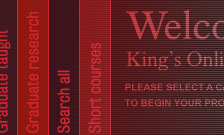
© 2024 King's College London | Strand | London WC2R 2LS | England | United Kingdom | Tel +44 (0)20 7836 5454

Doctor of Philosophy (PhD)
The PhD degree is a highly recognised advanced research postgraduate programme and is available in all faculties and schools/departments. The PhD programme is intellectually demanding, requiring strong analytical skills, critical thinking ability, and language proficiency for undertaking independent research to produce original ideas with significant impact. It aims to cultivate competent researchers who would like to develop their career in research, academia, and other professional areas.
The University offers 3-year and 4-year PhD programmes. Applicants who have a good Bachelor’s degree with honours and/or a taught Master’s degree will be considered for admission to the 4-year PhD programme, whereas those who already hold a research Master’s degree (e.g. MPhil) can be considered for admission to the 3-year PhD programme.
PhD candidates can commence their studies on the first day of any calendar month, and are generally expected to complete the degree within the following time-limits. The minimum study period is half of the normative study period.
Normative study period:
PhD study focuses on conducting independent research, under the supervision of a dedicated academic or a team of academics, leading to the final submission of a thesis. In addition, candidates of the 4-year PhD programme will be required to follow an approved course of study and research, including coursework on discipline-specific knowledge, language and research skills. The coursework component is well designed to equip students for their research work and thesis writing. Candidates for the 3-year PhD programme may also be required to take courses and satisfy coursework requirements.
Click here for the details of the coursework requirements. The award of the PhD degree is based on satisfactorily completing courses, where prescribed, submitting a thesis that should be an original contribution to knowledge and worthy of publication, and satisfying the examiners in an oral examination (and any other examination if required) in matters relevant to the subject of the thesis.
Click here for the Regulations for the Degree of Doctor of Philosophy.
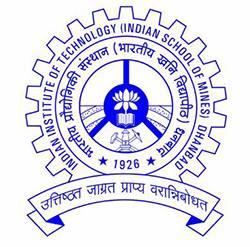
APPLICATION PROCEDURE
It is the responsibility of the candidate to verify that she/he fulfills all the eligibility requirements for admission to the PhD program of IIT (ISM) Dhanbad. Please consult the information brochure.
- Before applying please complete the registration step.
- After your registration is complete, you will receive an email on your registered email-id for verification. Please verify your email.
- Use your Registration Number to login to the application portal.
- Read the instructions carefully.
- Start your application using the “Apply” tab.
- Fill in all the details. Fields marked with an asterisk (*) are mandatory.You may write "NA" if you are not able to provide the corresponding data. Please keep pdf files for all documents for your credentials like marksheets, degree certificates, category certificates, etc. ready. They are required to be uploaded before completion of the submission.
- Please complete the submission by clicking submit.
- Please save a PDF copy of your completed application. It will be required during the admission process.
(i) Image files of your recent passport size photograph and signature.
(ii) Qualifying Degree Marks-Sheet of final semester / final year (7 th semester / pre-final year marks-sheet for the ‘appearing candidates’ whose final semester / final year results are pending).
(iii) Valid GATE score card as indicated in the application form (for GATE-candidates).
(iv) 2-year’s experience certificate for candidates of Tech. in Mining Engineering/Opencast Mining (wherever applicable)
(v) Caste certificate/EWS income certificate to avail seat reservation under respective reserved category. (The OBC(NCL) certificate as per Annexure I and issued on or after April 1st , 2020 ).
(vi) Persons with Disability (PwD) are required to upload a certificate of disability from the authorized medical board attached to one of the following - Vocational Rehabilitation Centre (VRC) for Physically Handicapped persons/ Special Employment Exchange for Physically Handicapped/ Government Hospital (District and State level).
(vii) Endorsement certificate from the present employer ( for Sponsored candidates ).
(viii) Salary Bank Account statement/Employees' Provident Fund (EPF) statement( for Sponsored candidates working in private firms/organizations )
The admission of selected candidates through online counselling will be provisional after the payment of admission fee.
The candidate is to Report in-person at IIT(ISM), Dhanbad on the scheduled date, time and venue for completing his/her admission. If the candidate fails to report at the admission venue in-person along with the requisite documents in original by that date and time, he/she will not be considered afterwards for admission.
For more details, please read the Information brochure carefully.
Visvesvaraya Ph.D. Scheme for Electronics & IT- Phase II (Department of Electronics Engineering) - Click Here
How to apply Visvesvaraya Ph.D. Scheme for Electronics & IT- Phase II (Department of Electronics Engineering) - Click Here
Please turn on JavaScript in your browser It appears your web browser is not using JavaScript. Without it, some pages won't work properly. Please adjust the settings in your browser to make sure JavaScript is turned on.
What’s the difference between part-time and full-time college students.
Senior Associate, JPMorgan Chase

If college is on your radar, you may be deciding if you want to be a part-time or a full-time student.
If you have responsibilities outside of school, such as a job or family obligations, you may be considering enrolling as a part-time student. On the flip side, if you feel that you can afford the time and monetary commitment that comes with full-time enrollment, then this may be the option that you’re leaning towards.
In this article, we’ll break down the differences between full-time and part-time student statuses, including the number of credits students can expect to take in these two statuses and how long it may take to graduate if you're a part-time or full-time student.
Also, of note, you don’t necessarily have to think of this decision as a permanent one. Some schools and programs allow students to change their enrollment status between full-time and part-time for a semester or trimester, depending on their needs. Another thing to remember as you make this choice is not all schools and programs offer the opportunity for students to enroll part-time.
What’s considered full-time college enrollment?
There are three definitions to be aware of when understanding what it means to be a full-time student – your school’s definition, the U.S. Department of Education’s definition, and the Internal Revenue Service’s (IRS) definition.
First, colleges and universities each have their own definitions for what’s considered full-time. To be considered full-time by a college, most colleges require students to be enrolled in a certain number of classes and credits for a semester, although the requirements may vary.
The U.S. Department of Education defines full-time student status as being enrolled in at least 12 credit hours per term. This definition is important to understand because it may relate to your eligibility for financial aid provided by the federal government.
There’s also a legal tax status in order to be considered a “full-time student” by the IRS. Having this status may enable you to take certain exemptions on your taxes. To be a full-time student as defined by the IRS, you must:
- Be a full-time student as defined by your school.
- Be a student for five calendar months of the year (these months don’t need to be consecutive).
- Be a full-time student at a school that has a regular teaching staff, course of study, and a regularly enrolled student body. A student taking a full-time, on-farm training course offered by a school, state, county, or local government agency may also qualify.
How many classes do full-time students take a semester?
There’s no set number of classes that are considered full-time across the board. However, for many schools, full-time enrollment often involves taking between three and four classes a semester, depending on how many credits each class is worth. The same is true to meet the U.S. Department of Education’s definition of being a full-time student.
Remember that all schools are not on a semester schedule, so the guidelines may differ.
How many credits do full-time students take a semester?
To meet the U.S. Department of Education’s definition of being a full-time student, students must be enrolled in at least 12 credit hours per semester. Individual schools may have different credit requirements for students to be considered full-time. As a refresher, credit hours are a measure that determines the weight of a particular class. Since all schools aren’t on a semester schedule, this may vary.
How much does college cost for a full-time student?
According to data from College Board, a nonprofit organization that helps students with college admissions, the average cost for a full-time student was $10,940 for those attending in-state public colleges and $28,240 for those attending out-of-state public colleges in the 2022-23 school year. For students who attended private schools, tuition was on average $39,400.
Remember, these numbers are averages, which means tuition varies depending on the exact school. The other thing to keep in mind is that these numbers reflect the sticker price of tuition at schools – many students ultimately pay less because of financial aid.
How long does it take to graduate from college as a full-time student?
It takes most full-time students four years to graduate from college with a bachelor’s degree. For students seeking an associate degree, it most often takes them two years to graduate.
Keep in mind, these timelines can vary. It takes some students less time to graduate with a college degree if they’re able to enter a degree program with college credits in hand, if they’re able to load up on credits during some terms, or if they take classes in summer or winter sessions (or some combination of this). On the flip side, it can take some students longer than the traditional two or four years to graduate with a college degree in some instances.
What’s considered part-time college enrollment?
A part-time student enrolls in fewer classes than a full-time student. They may have a day job or other responsibilities that they juggle in addition to classes. As a result, they may pay less in tuition per term (since they’re taking fewer classes), but it may take them more terms to graduate. They also may have less access to financial aid, including scholarships and grants.
How many classes do part-time students take a semester?
Most schools consider a student taking less than three or four classes a semester (depending on the credit hours of the class) a part-time student. This may vary depending on if a school is on a quarter or trimester schedule.
How many credits do part-time students take a semester?
A part-time student usually takes fewer than 12 credits a semester, though that may differ based on a school’s definition of what a part-time student is. Again, this may vary if a school is on a quarter or trimester schedule.
How much does college cost as a part-time student?
How much a school costs as a part-time student will depend on the school. Typically, as a full-time student, you pay by the term (quarter, trimester, or semester), but as a part-time student, you often pay by the credit hour or how many classes you enroll in for a term.
It’s important to note that even if being a part-time student is cheaper in the short term, in the long run, it may ultimately cost more to graduate as a part-time student than as a full-time student. This is because students who are enrolled part-time are often charged by the number of credit hours they’re enrolled in and also may encounter additional fees, while full-time students may be charged a flat rate for a term, enabling them to take anywhere from 12 to 18 credits a term. Full-time students who enroll in enough credits a term may ultimately see cost-savings.
You may want to speak to an academic advisor to fully determine the costs of part-time and full-time enrollment to make the best choice for your situation.
How long does it take to graduate college as a part-time student?
A 2023 study by the National Student Clearinghouse Research Center, a nonprofit, found that 20% of students from the class of 2017 who were enrolled exclusively part-time graduated in six years . The same study found that 51.1% of students with mixed enrollment (a combination of part-time and full-time) graduated within six years.
How long it takes you to graduate as a part-time student will heavily depend on how many credits you ultimately end up taking each term, and your consistency in enrolling in classes each term.
Does the Free Application for Federal Student Aid (FAFSA ® ) cover part-time students?
The FAFSA ® is used by students to access federal student aid including federal student loans, grants, and work-study, if they’re eligible. Part-time students may be eligible for federal financial aid if they’re enrolled in at least a half-time class load (usually around six credits per semester).
If you’re enrolled half-time as a part-time student, you apply for federal financial aid in the same way a full-time student would via the FAFSA ® .
Part-time students who are eligible for federal financial aid may receive less aid than full-time students, including a reduced Pell Grant award , because of their enrollment status.
How to decide whether to enroll as a part-time or full-time student
By looking at your immediate financial circumstances as well as the time commitment you can make to school, you may be able to get a gauge of whether you should attend college part-time or full-time.
When it comes to enrolling full-time, on the pro side, full-time students may be able to immerse themselves fully in their academic pursuits, allowing for deeper engagement with their studies and the college experience. Being enrolled full-time often leads students to graduate quicker and enables graduates to enter the workforce or pursue more advanced studies sooner. Additionally, full-time status may qualify students for more scholarships and financial aid opportunities, which may reduce the cost of obtaining a degree.
When it comes to attending college part-time, one significant advantage is the flexibility it offers, allowing students to balance their education with work, family responsibilities, and other commitments. This can make attending college more accessible, especially for those who need to maintain a job or care for family members. Part-time enrollment can provide an opportunity to gain practical work experience while in school, too.
Final thoughts
At the end of the day, your status as a part-time or full-time student may change throughout your college career. Sometimes, life happens, and you may want to change from being a full-time to a part-time student, for instance. Even if you find yourself in this situation, know that if you stay the course, you’ll still graduate with a diploma; it may just take a bit longer.

IMAGES
VIDEO
COMMENTS
A part-time PhD requires pretty much the same amount of work as a full-time PhD. Part-time PhD programmes are spread out over a longer period, but the requirements in terms of credits and output (a monograph or cumulative dissertation) are usually the same. Part-time PhD candidates are often highly aware of their time limitations.
Part Time PhD Fees. The average tuition fee for part time PhD study in the UK is approximately £2,356 per academic year for home students, and between £8,000 to £12,500 for international students. This is typically 50% of the fee charged for an equivalent full time doctorate. However, a handful of universities use a prorated fee of up to 60% ...
Tufts School of Engineering's part-time PhD Program helps working professionals achieve their education and career goals. Conduct cutting-edge research and develop new technologies with our world-class faculty, all while maintaining your employment in industry. Our part-time PhD program is tailored for industry professionals who receive full ...
Part-Time Doctor of Nursing Practice at Georgetown University. Georgetown University School of Nursing, for instance, offers distance-based, online DNP programs focusing on ethical leadership and accessibility to care for underserved populations. Program Length: 2 years. Required Credits to Graduate: 57.
By Jamie Foster November 5, 2023. Earning a PhD is the pinnacle of academic achievement in computer science, opening doors to research, teaching, and leadership roles. But taking 4+ years off work for a full-time program isn't feasible for everyone. Part-time PhD options allow professionals to attain this goal while continuing their careers.
To be included, a college or university must be regionally accredited and offer degree programs online or in a hybrid format. 1. Andrews University. Andrews University is a private university in Berrien Springs, Michigan, that is affiliated with the Seventh-day Adventist Church.
Brown University awards more than 200 doctor of philosophy degrees annually. The Brown Ph.D. is primarily a research degree. Teaching is an important part of many doctoral programs, and many departments require candidates for the Ph.D. to have teaching experience. Brown University offers substantial financial support to doctoral students.
For further details, see the Ph.D. Program Description in the Graduate Catalog. Part-Time Study. The Ph.D. program supports part-time study. To accommodate students with full-time employment, the department typically offers at least one CSE graduate course in the late afternoon (starting at 3:30) or early evening on a twice weekly basis.
The main difference between part-time PhDs and full-time study is the length of the course. By the end of the PhD you will have completed the same amount of work and produced a full length thesis.. While most students in our Pulse survey data are interested in full-time PhDs, those in the upper age groups (45+ years) are more likely to consider part-time (37% versus 15% between 18-44 year olds).
Wayne State University's Part-Time PhD in Social Work. Wayne State University offers one of the best part-time doctoral programs in social work in the country for those who already have a master's in social work. With options in anthropology, gerontology, or infant mental health emphasis, the first three years of coursework prepare students ...
The PhD is available in-person in a full-time and part-time format to allow students to complete their studies in a way that is convenient for them. Drexel's part-time EdD program offers a 3-year and 5-year plan of study and is available fully online or in a hybrid format with students coming to campus three times each quarter.
Full-time PhD candidates have more time to spend on their research and coursework. Part-time candidates may have other commitments competing with schoolwork. Financial assistance opportunities may vary depending on your program choice. Research for a full-time student might be more immersive.
Translations from translation agencies, individuals, or ATA-certified corporations are not acceptable. *To electronically submit your WES ICAP, follow the instructions provided by WES. Select "University of California at Berkeley" as the recipient and "Graduate Admissions" 318 Sproul Hall #5900, Berkeley, CA 94720-5900 as the school ...
The degree is approximately 30% course work and 70% research. Ph.D. students can attend the University of Washington on either a full-time or part-time basis. About 95% of the Ph.D. students attend full time. Ph.D. students can be admitted via one of three paths: Pre-M.S. Direct entry into the Ph.D. program without an MS degree
All of our doctoral programs are designed to develop outstanding educational researchers who have a deep understanding of the scientific, practical and policy issues they study. All require full-time study, and we promise five years of full-time financial support for every student we admit. Our doctoral programs are small, typically ranging from about 25 to 35 new students a year.
Tuition rates are set annually by the university and are affected by multiple factors, including program degree level (undergraduate or graduate), course load (full- or part-time), in-state or out-of-state residency, and more. These tuition costs apply to the 2023-2024 academic year. Pennsylvania resident: $1,301.00 per credit
Requirements for a part-time PhD applicants in Computer Science and Technology. The proposed topic of research must be suitable for part-time study. The proposed topic needs to be suitable for study over a minimum of five years (15 terms) and a maximum of seven years (21 terms).
Part-Time Status for Graduate Students Part-time graduate students enroll in 6 units or less, and must apply to the Office of the University Registrar, using the Part-Time Petition webform. The deadline to apply for part-time status is the 10th day of instruction of the quarter in which part-time will begin. Approved part-time students pay the full student services fee, all campus fees and one ...
PhD Program Overview. The PhD program prepares students for research careers in probability and statistics in academia and industry. Students admitted to the PhD program earn the MA and MPhil along the way. The first year of the program is spent on foundational courses in theoretical statistics, applied statistics, and probability.
Minimum qualification for these candidates is the same as for full-time candidates, except that the requirement of qualifying in a national examination is waived. For part-time candidates from outside NCR (or at a radial distance of more than 50 km from IIT Delhi), there is a minimum residency requirement of 6 months.
MPhil/PhD Programmes. There are over 400 research students at the Institute who come from a range of backgrounds including psychology, psychiatry, nursing, social work and basic sciences. Our MPhil/PhD programme allows students to carry out research in any of our 14 departments and in a wide variety of areas; from molecular genetics and biology ...
36 months. 54 months. 48 months. 72 months. PhD study focuses on conducting independent research, under the supervision of a dedicated academic or a team of academics, leading to the final submission of a thesis. In addition, candidates of the 4-year PhD programme will be required to follow an approved course of study and research, including ...
All candidates seeking admission to the Ph.D. program (Part-Time) to the institute must apply online through the admission portal of IIT (ISM) ... It is the responsibility of the candidate to verify that she/he fulfills all the eligibility requirements for admission to the PhD program of IIT (ISM) Dhanbad. Please consult the information brochure.
Individual schools may have different credit requirements for students to be considered full-time. As a refresher, credit hours are a measure that determines the weight of a particular class. Since all schools aren't on a semester schedule, this may vary. ... it may ultimately cost more to graduate as a part-time student than as a full-time ...